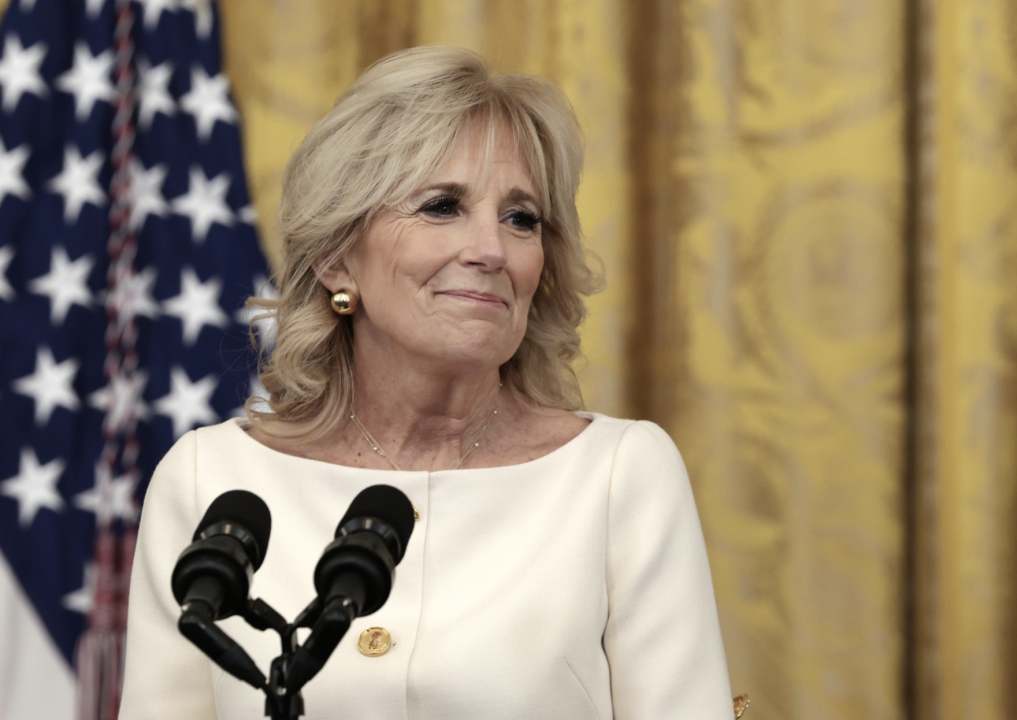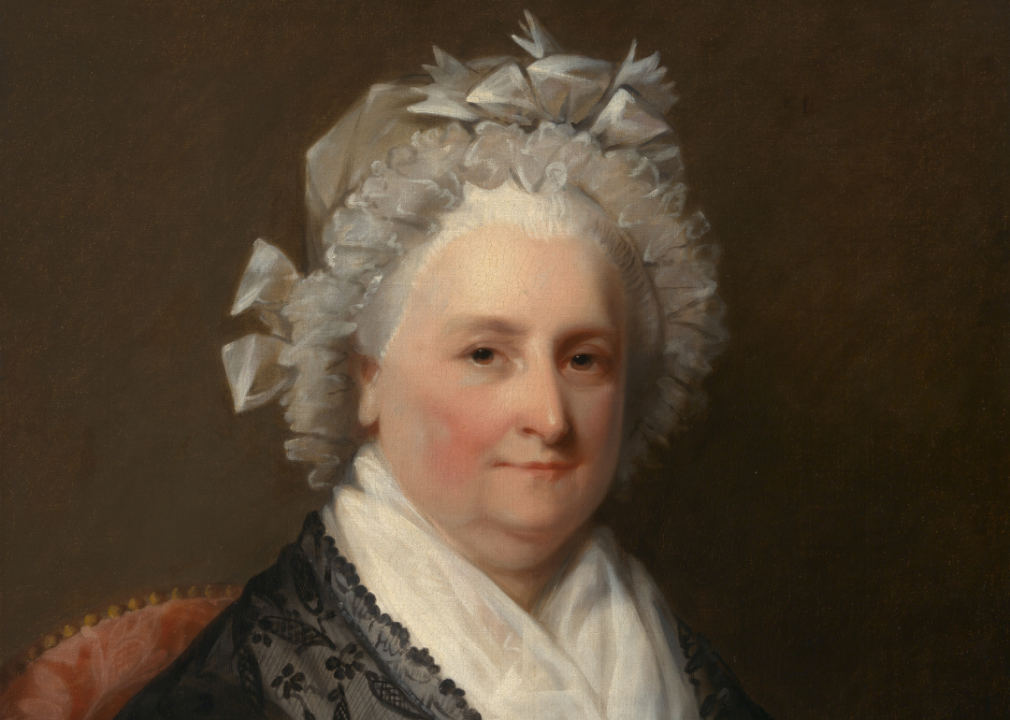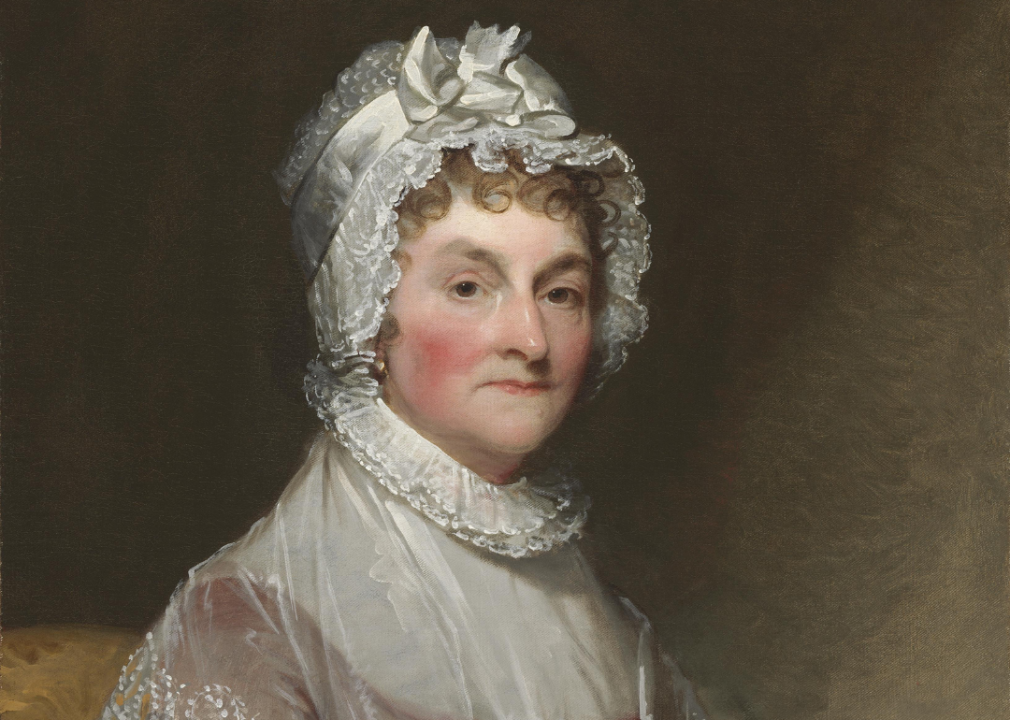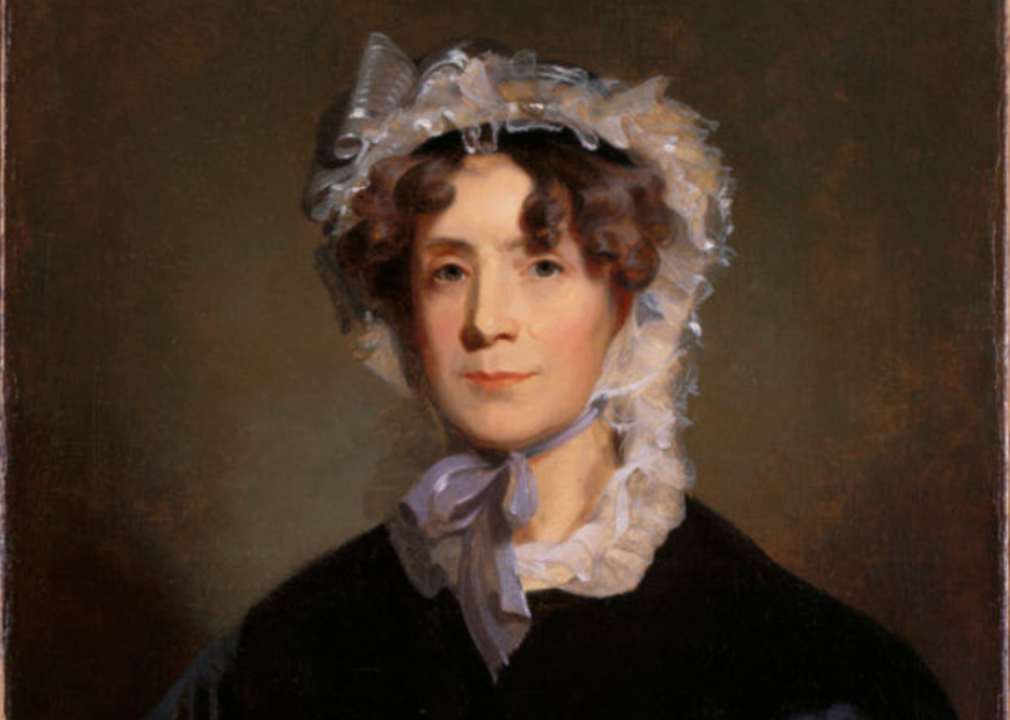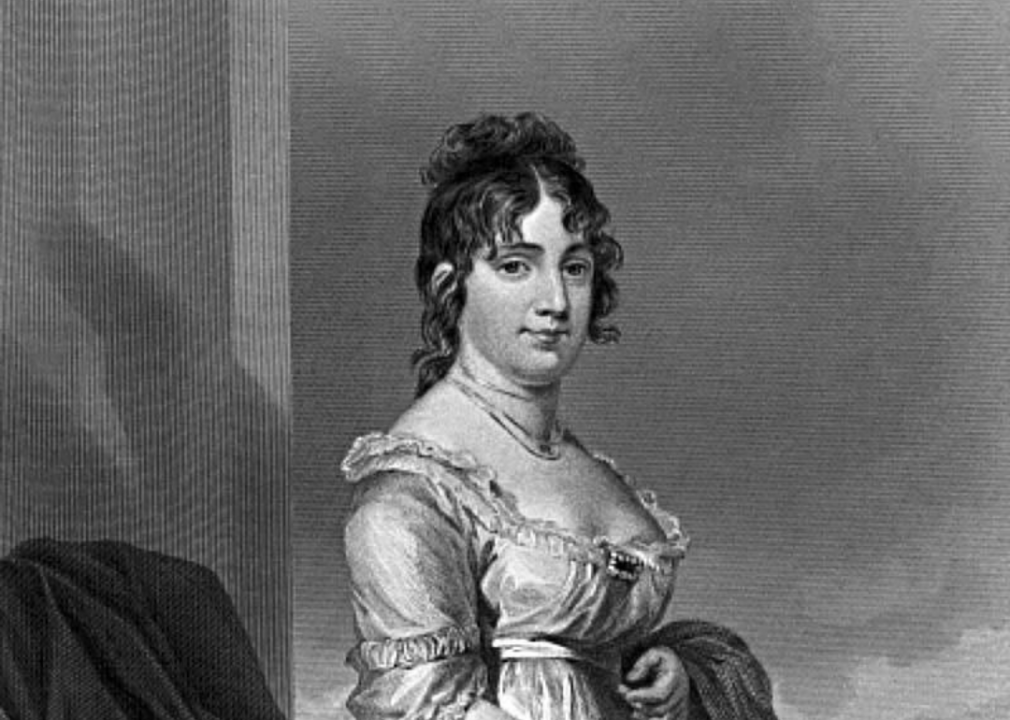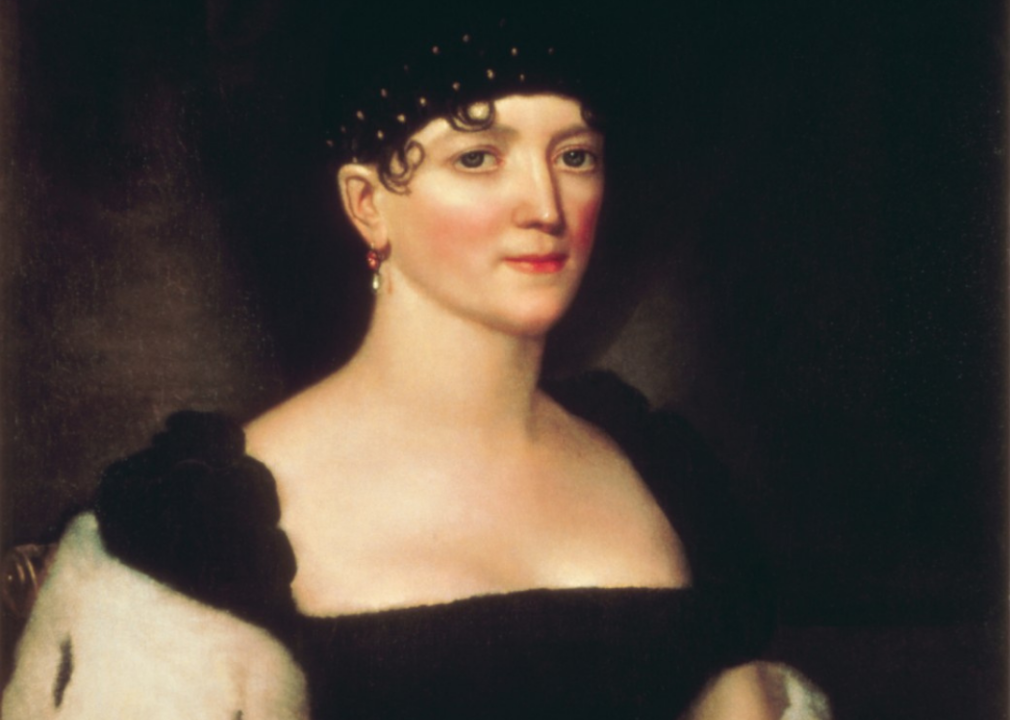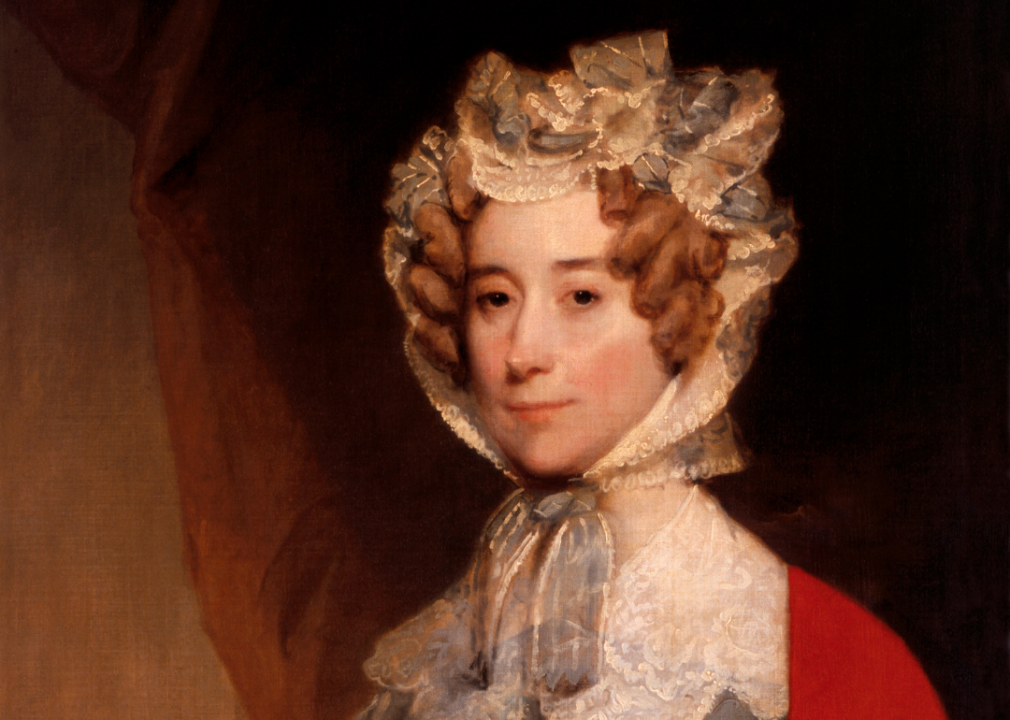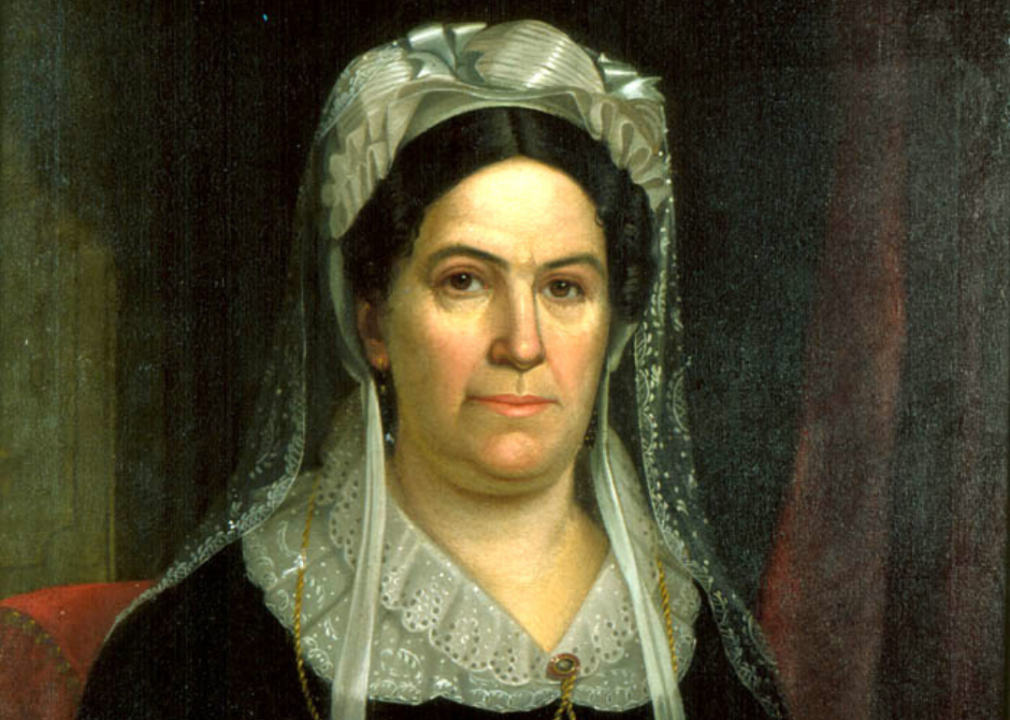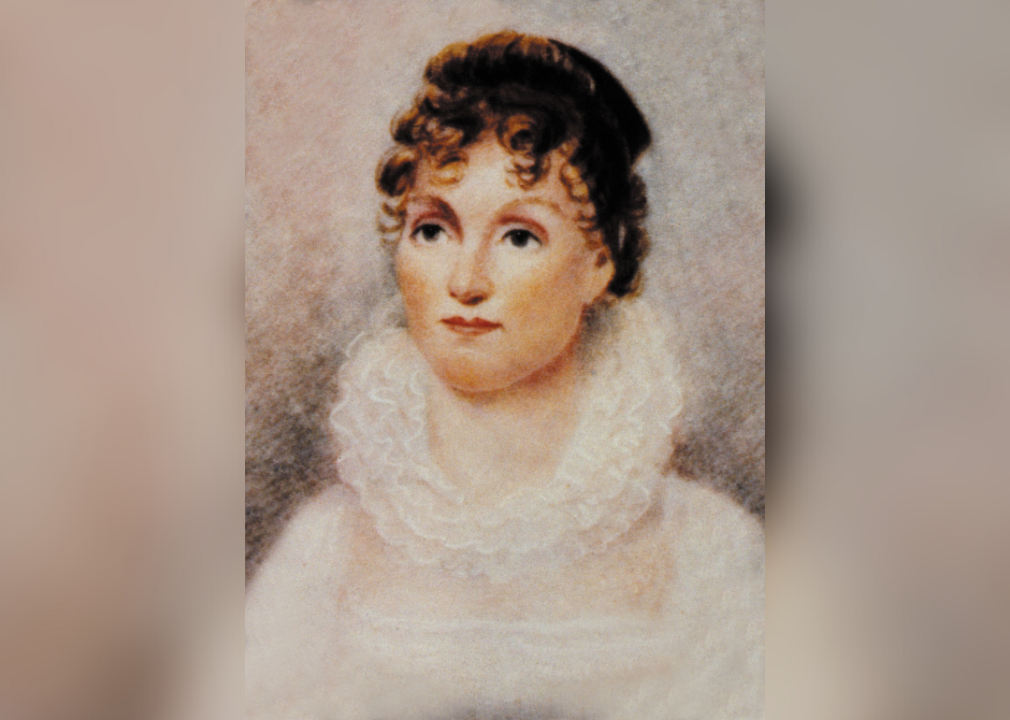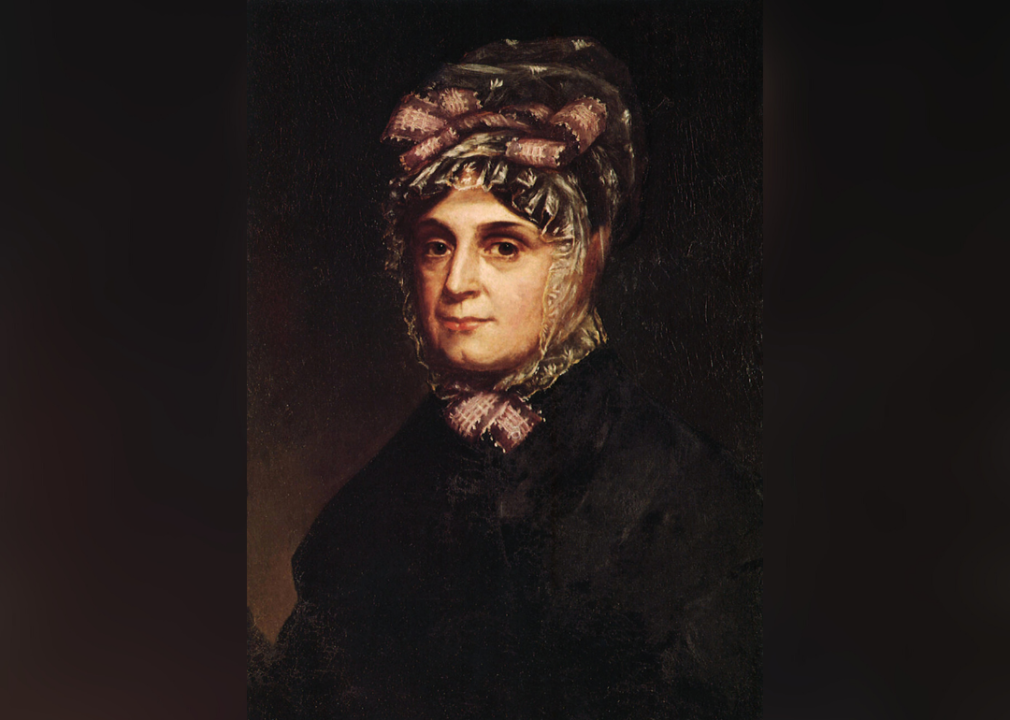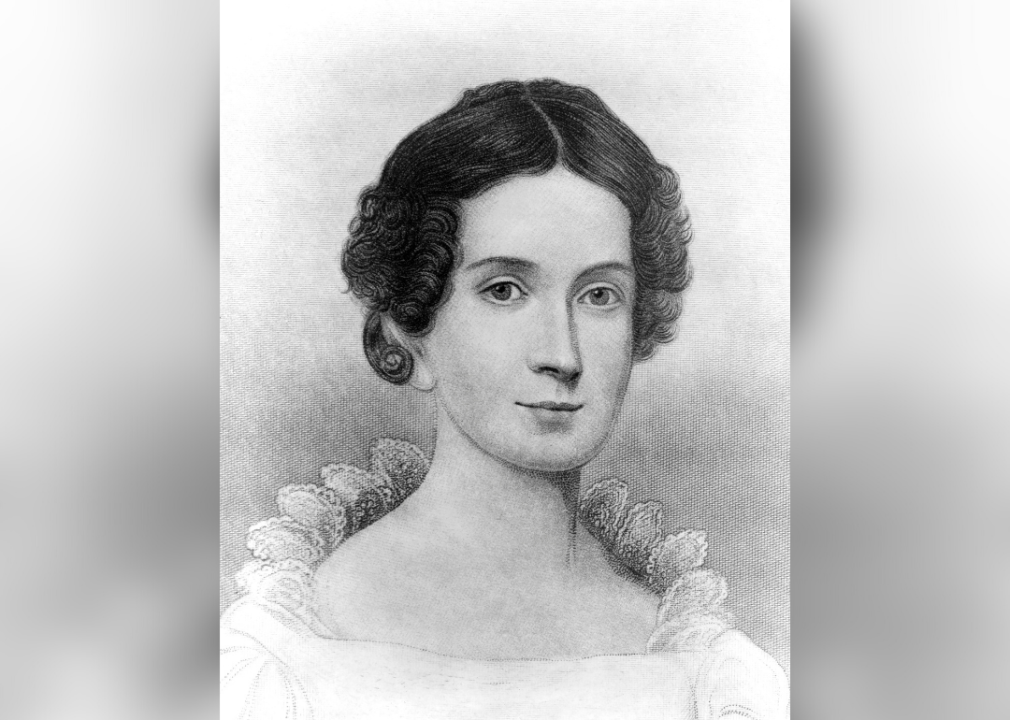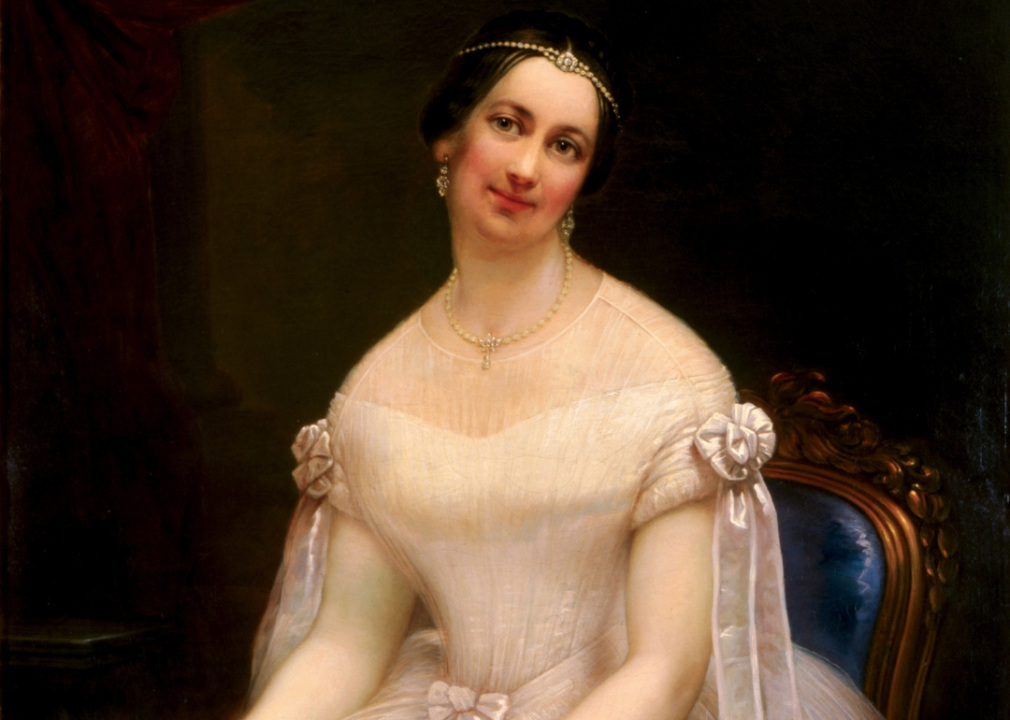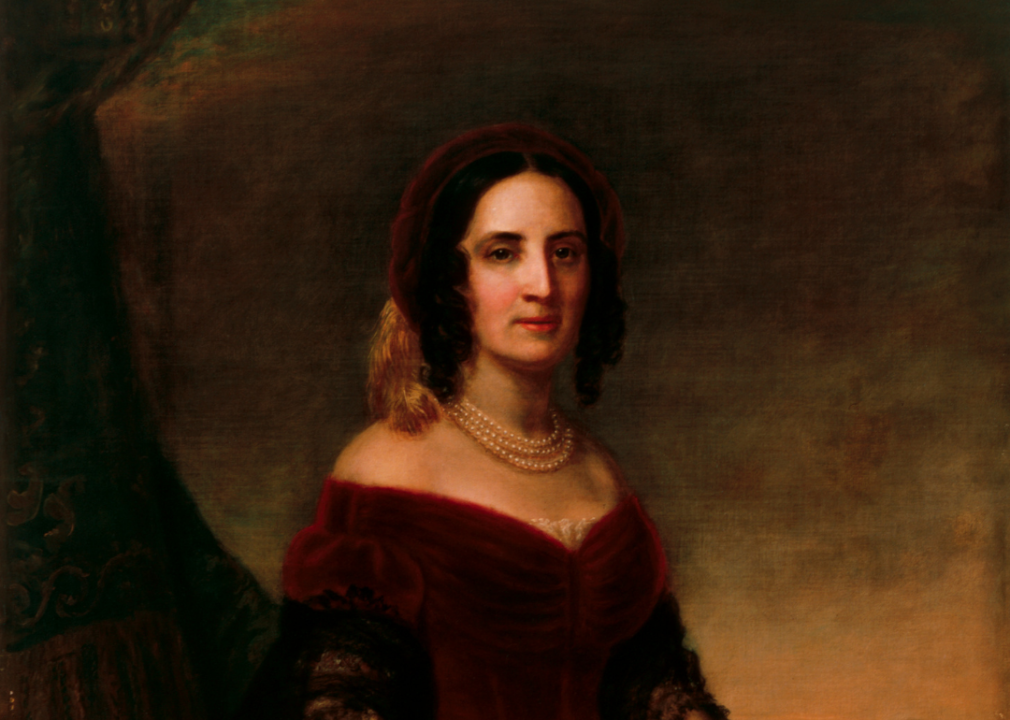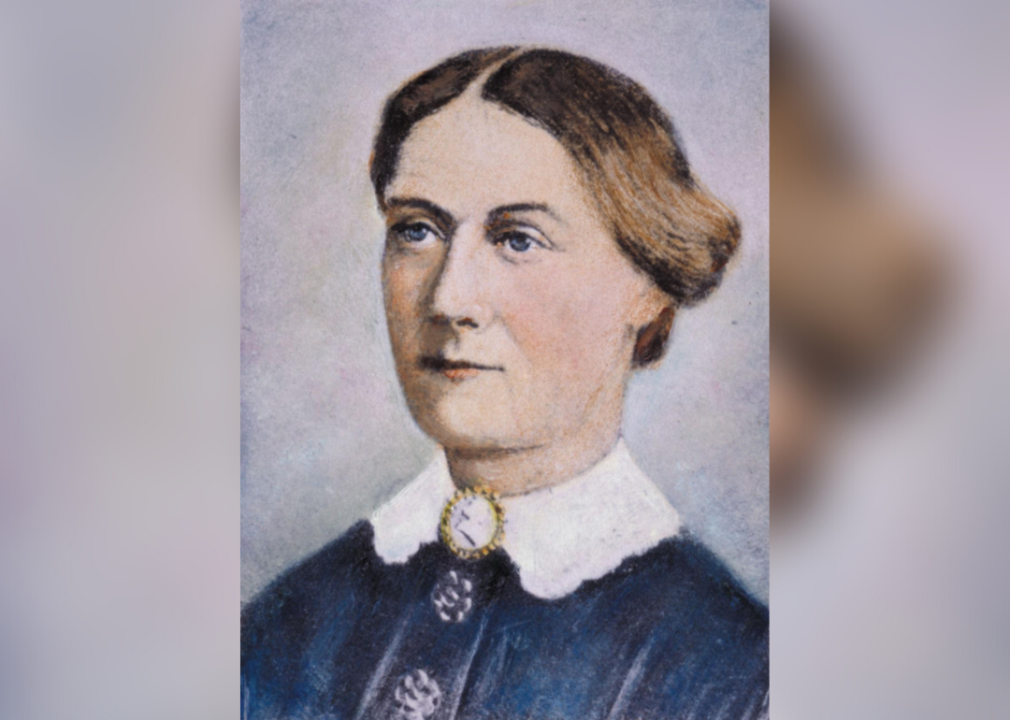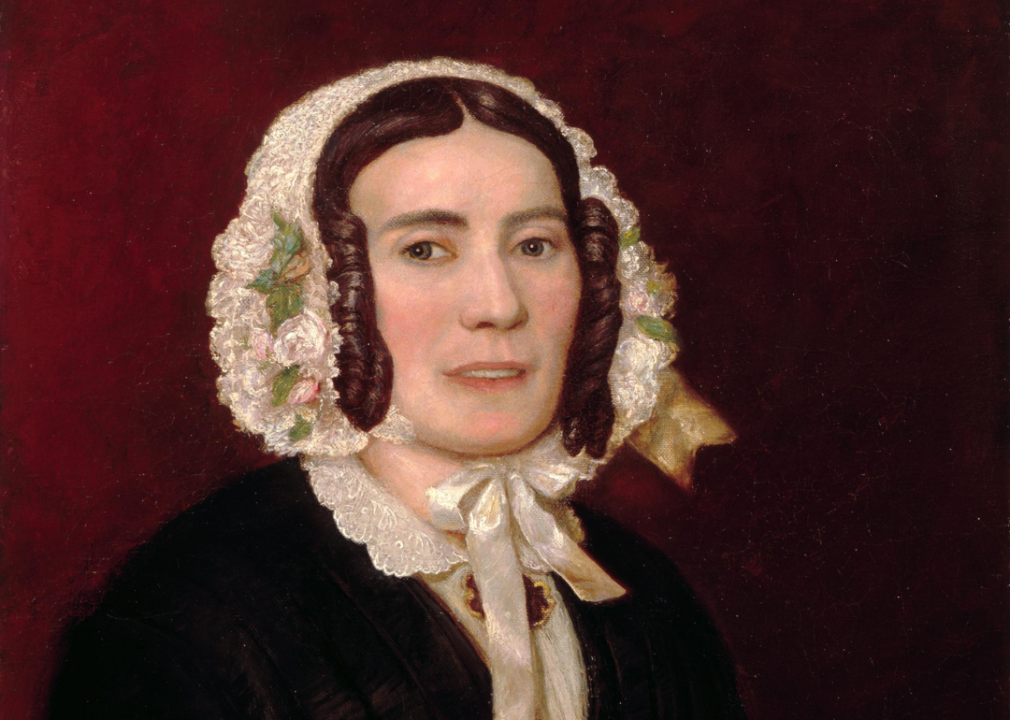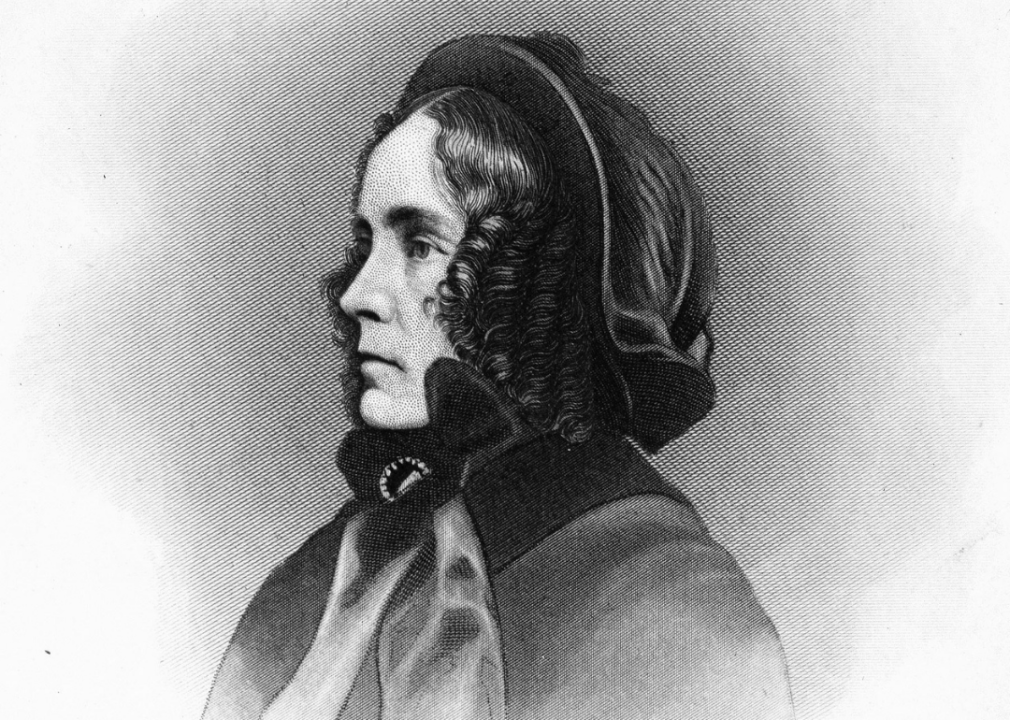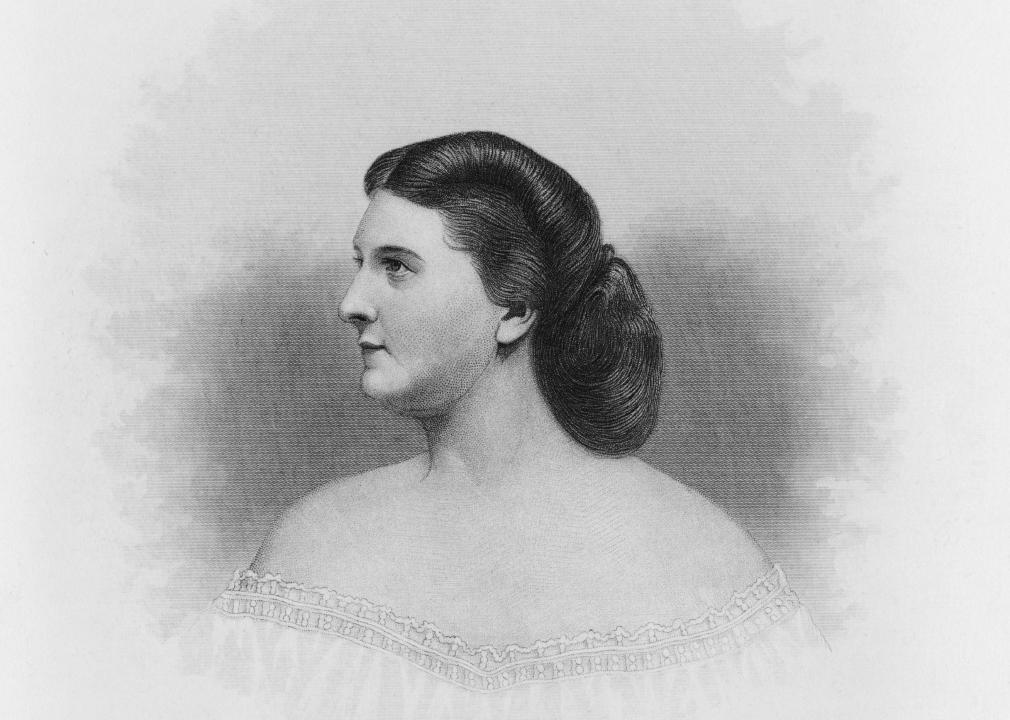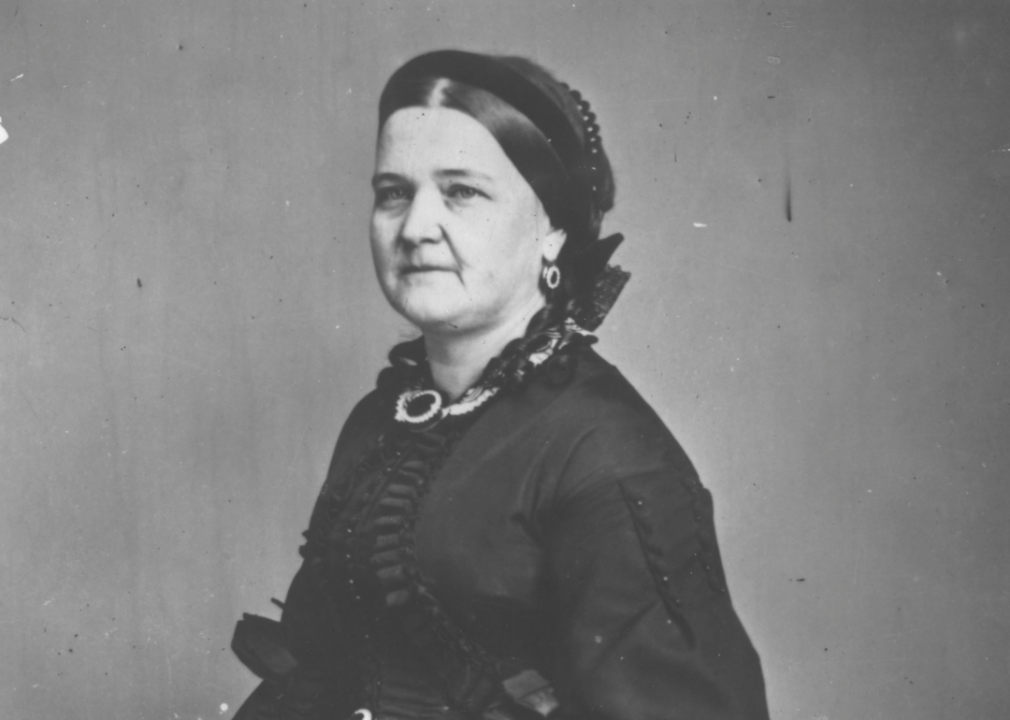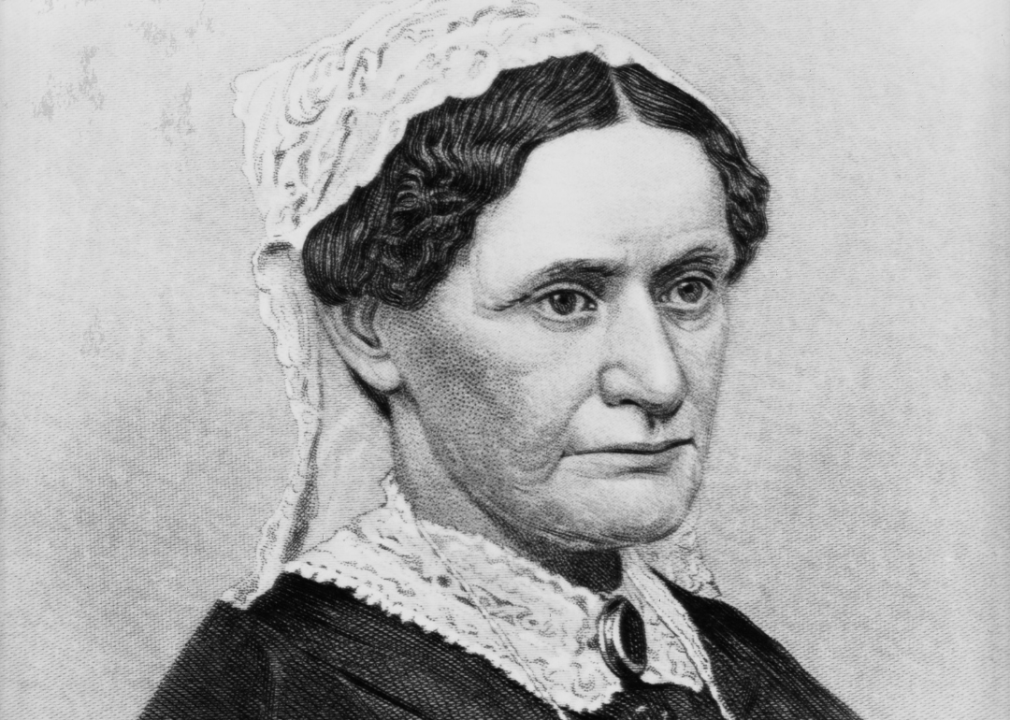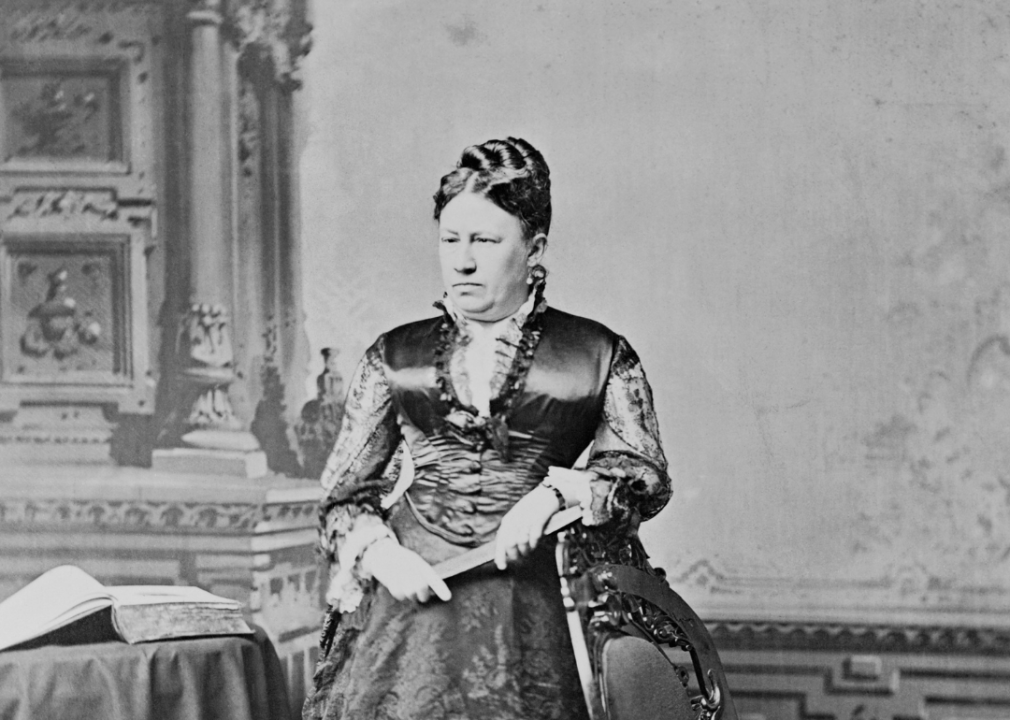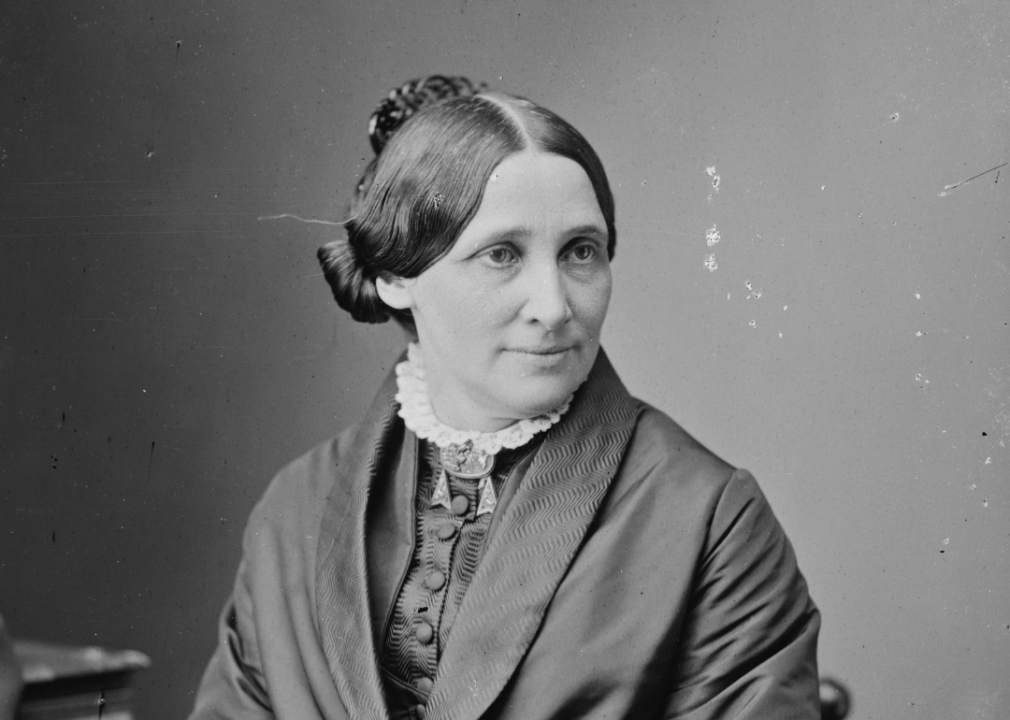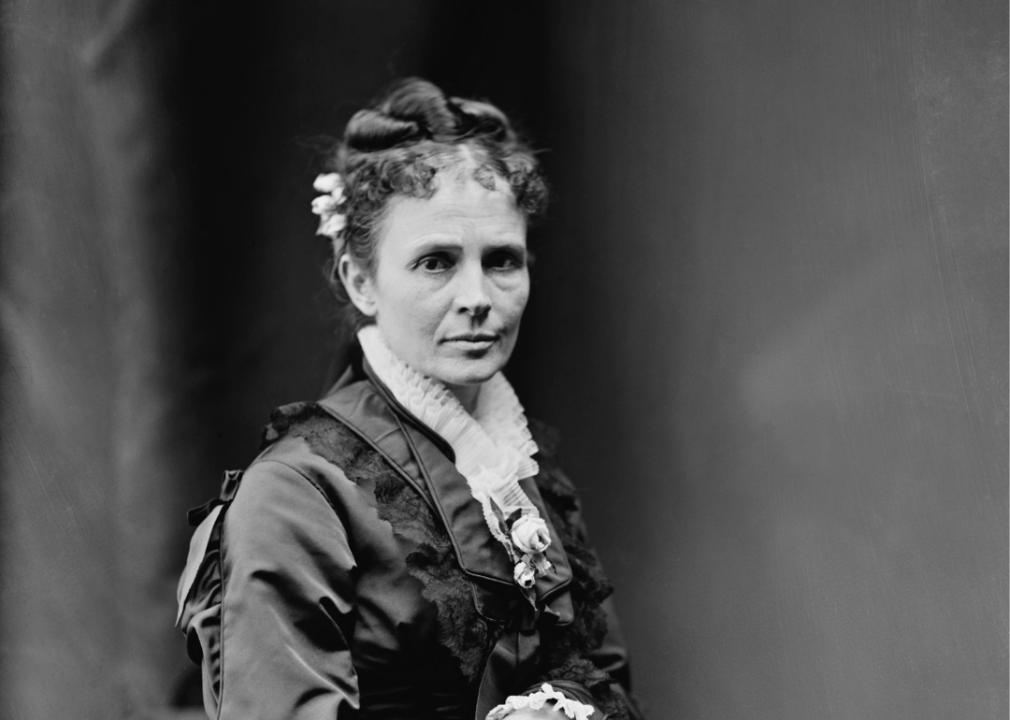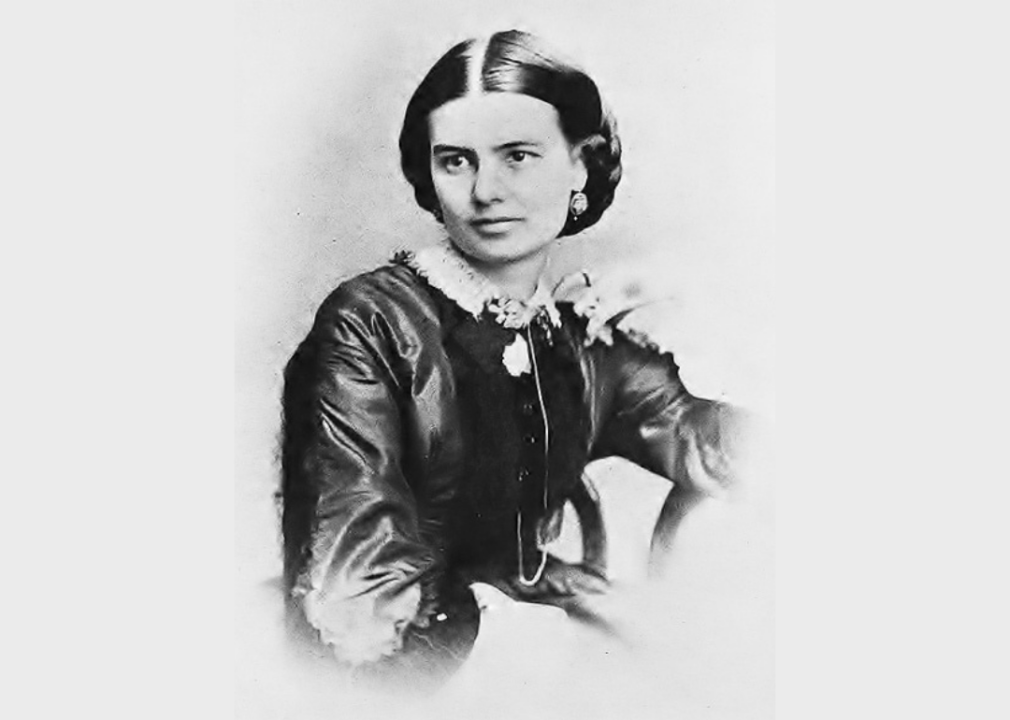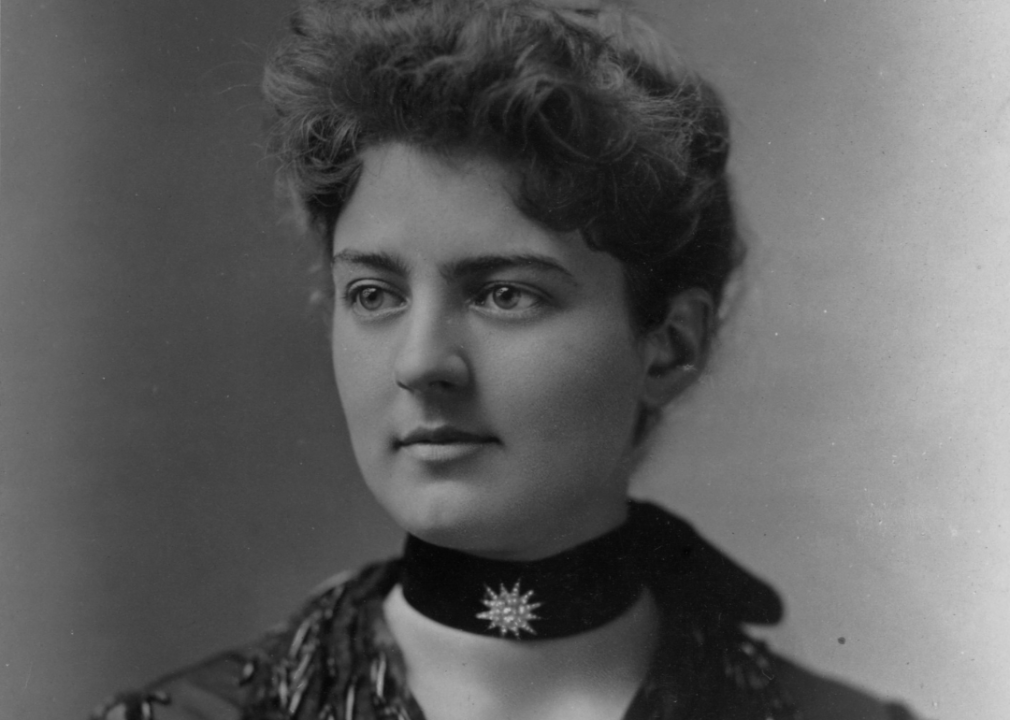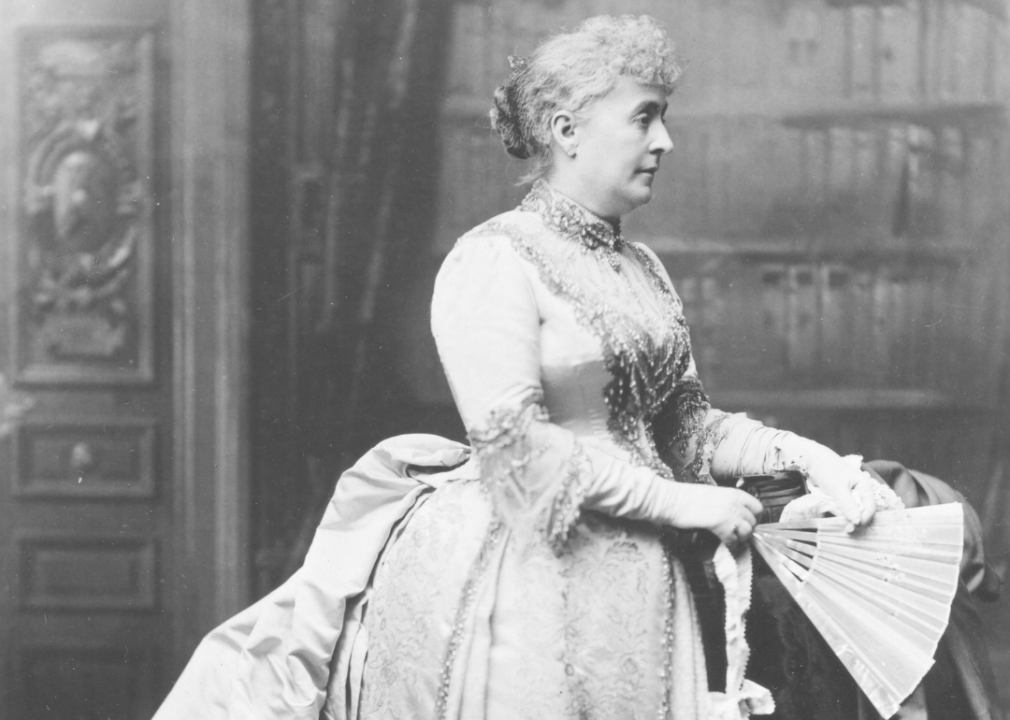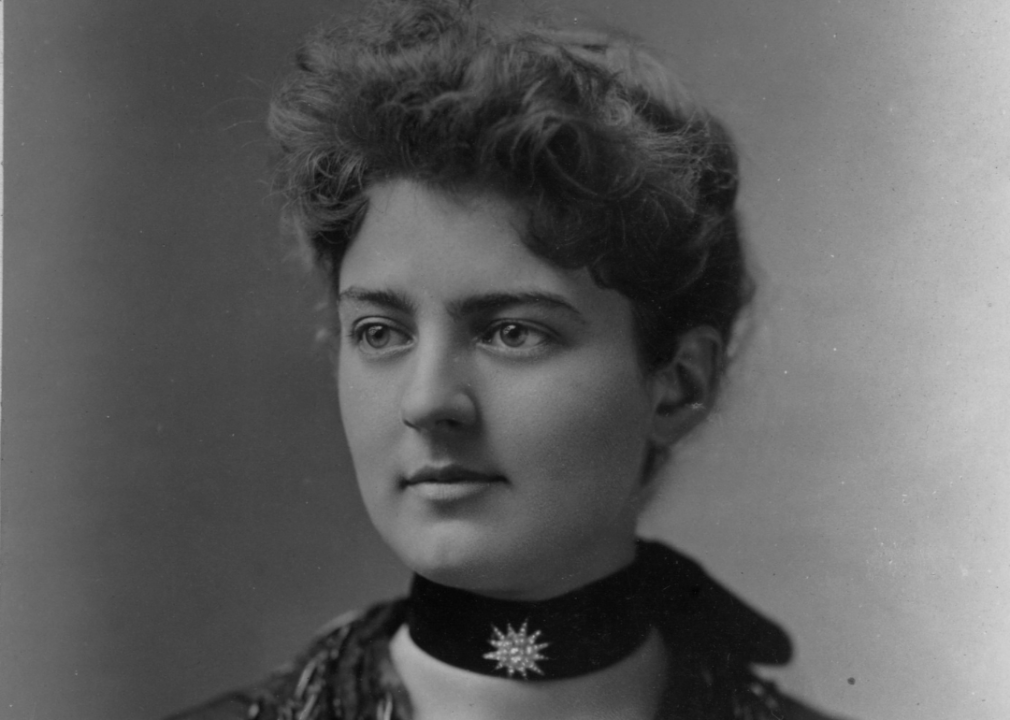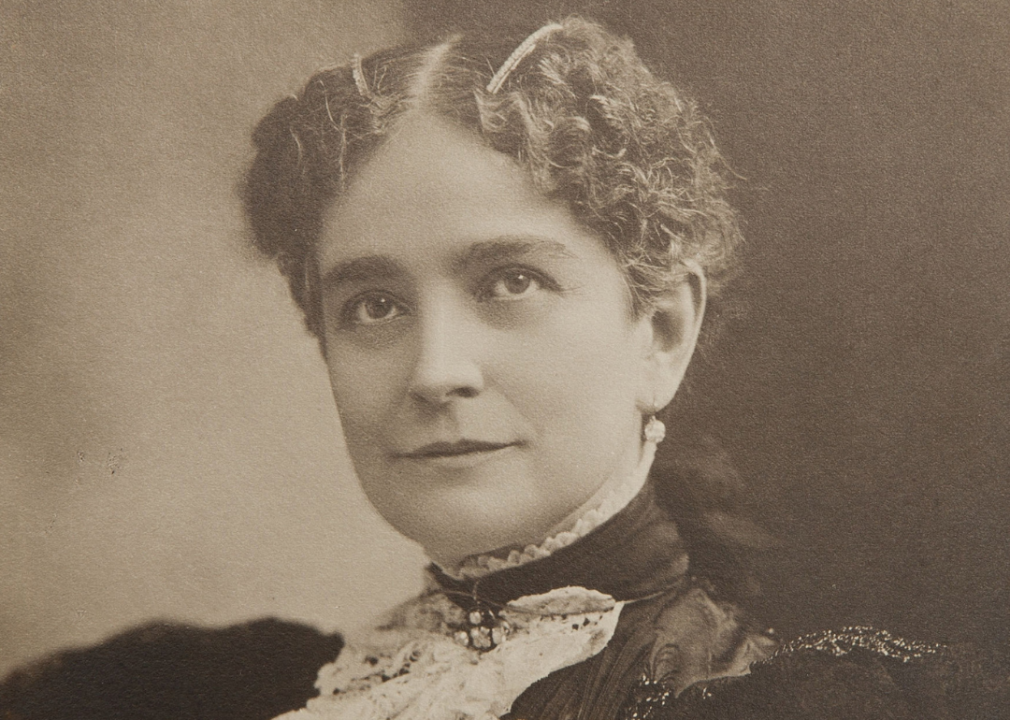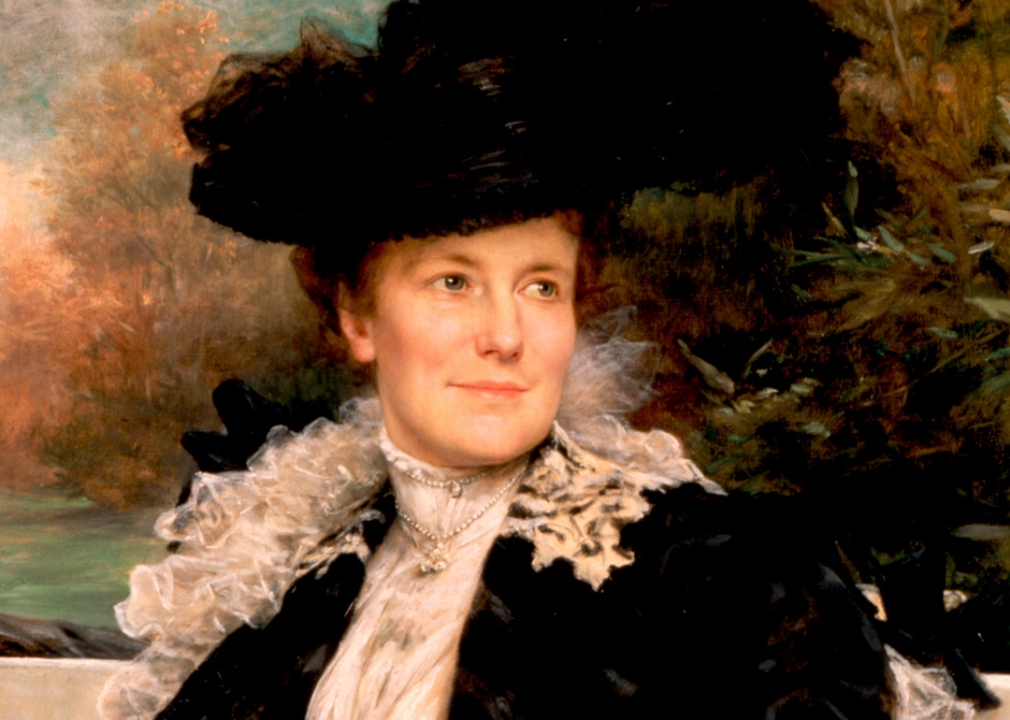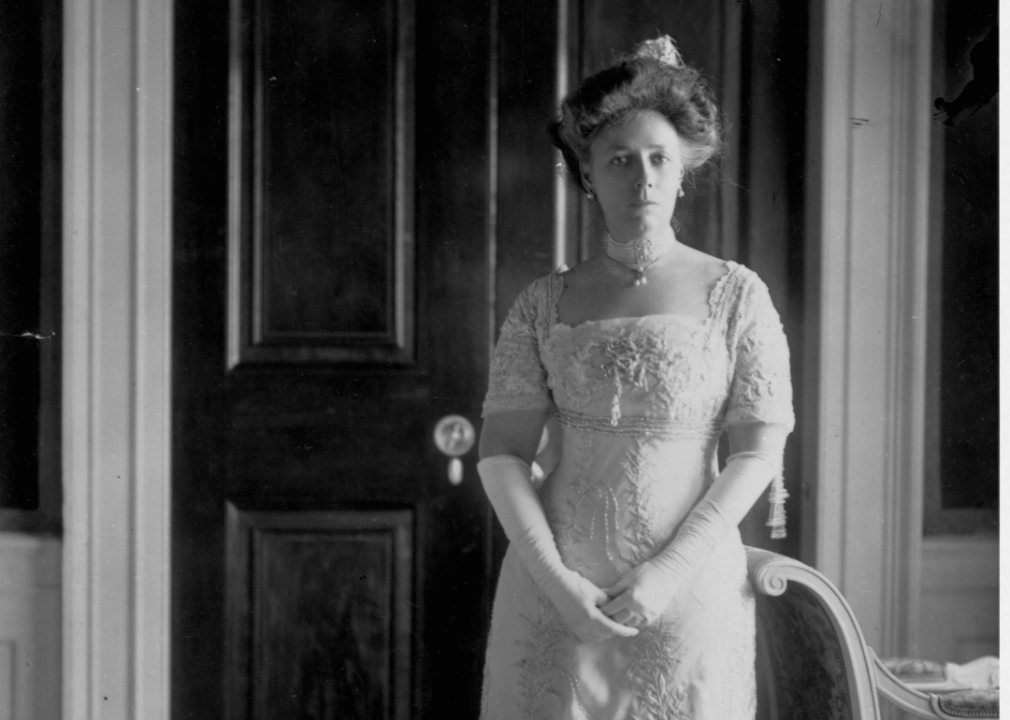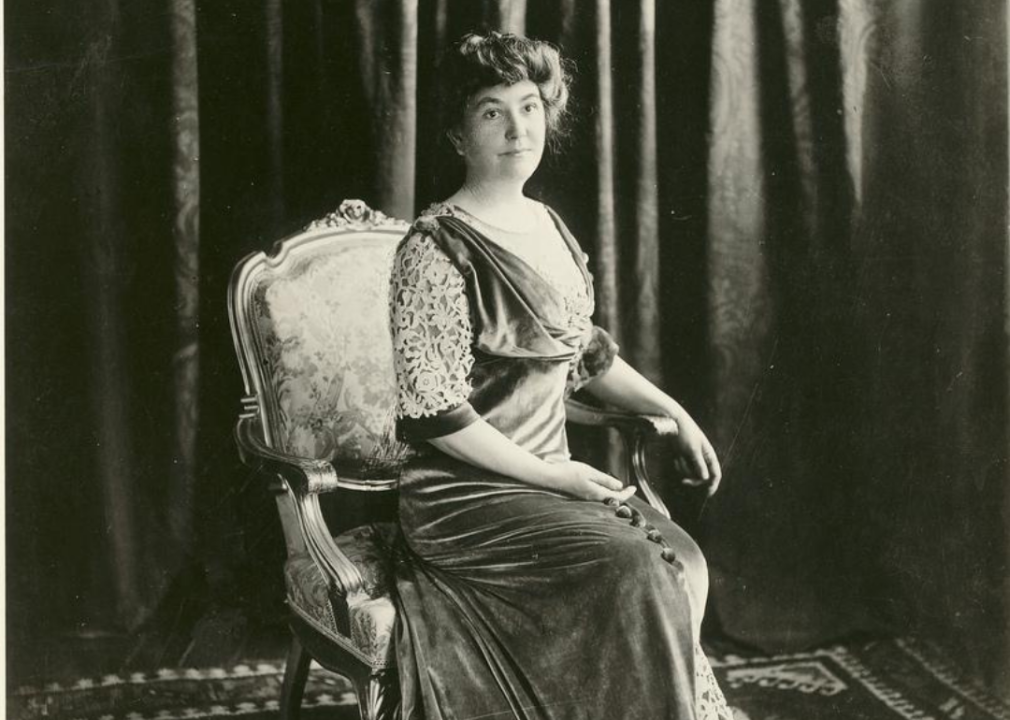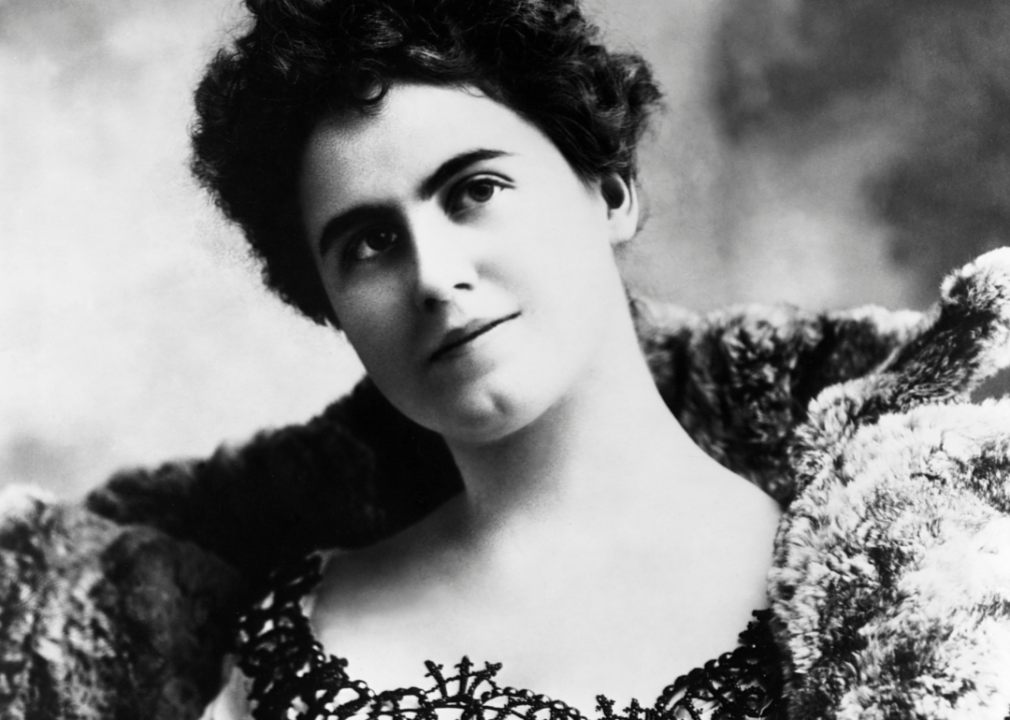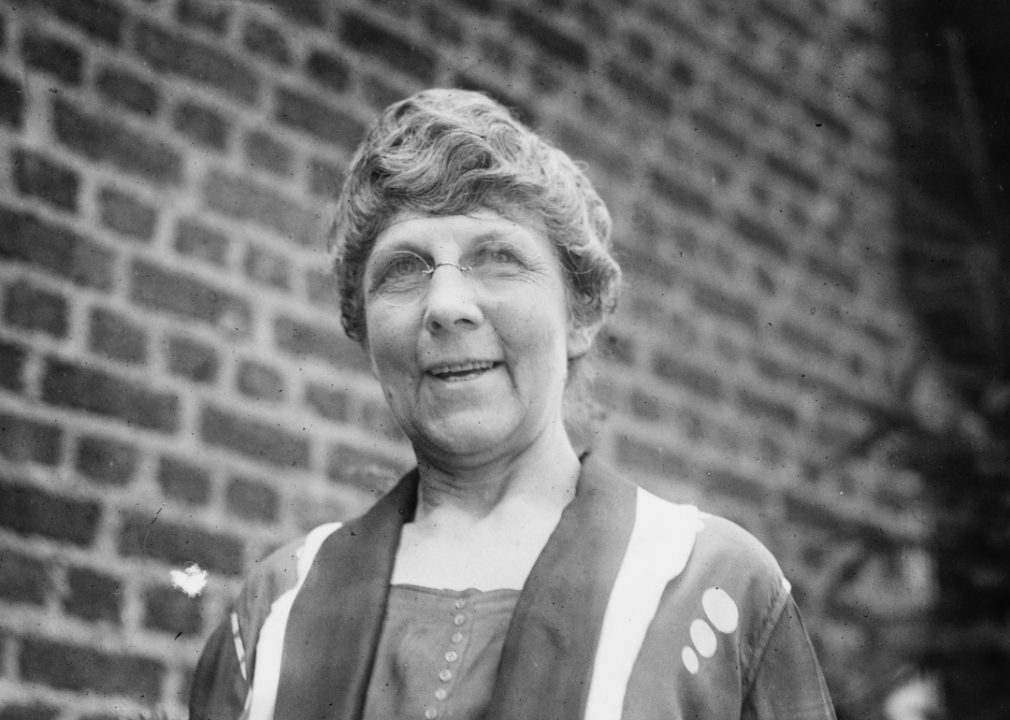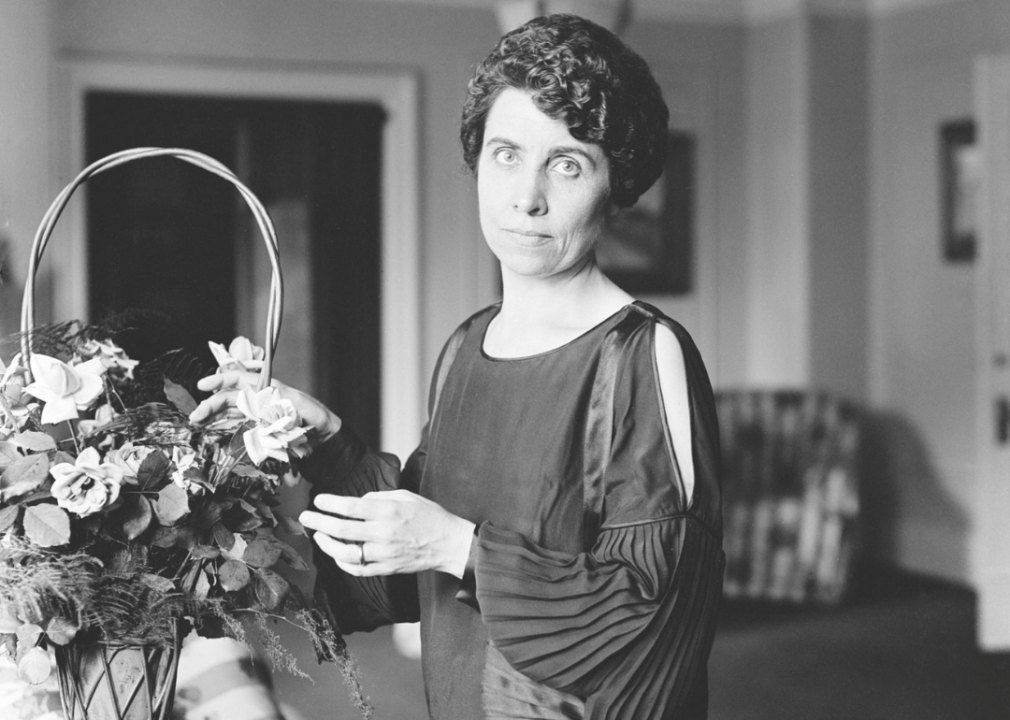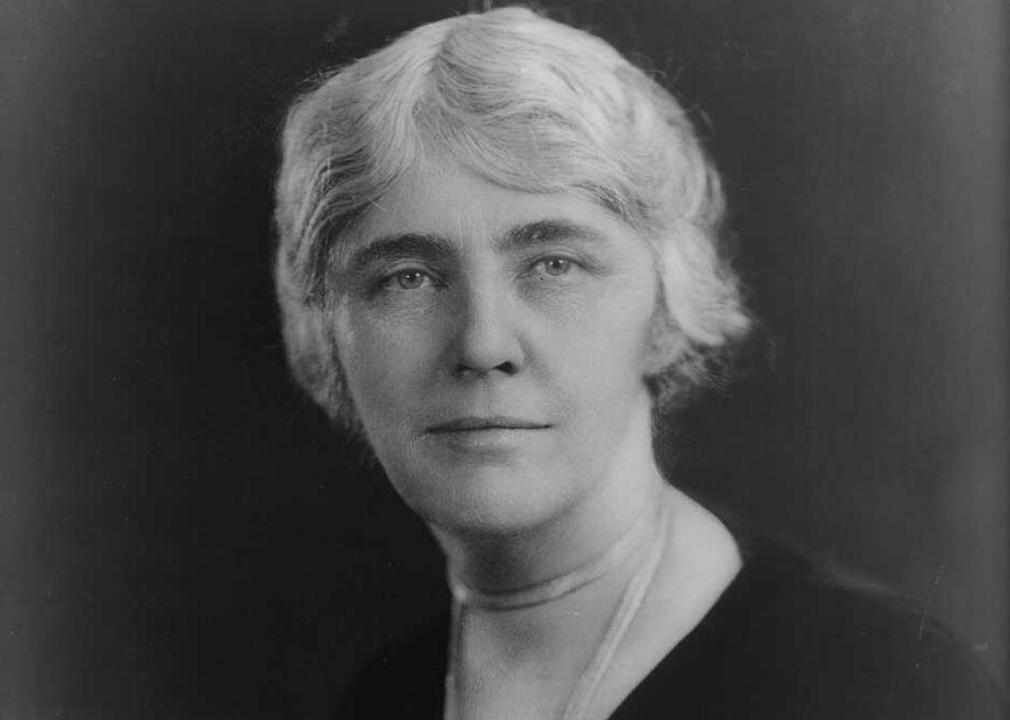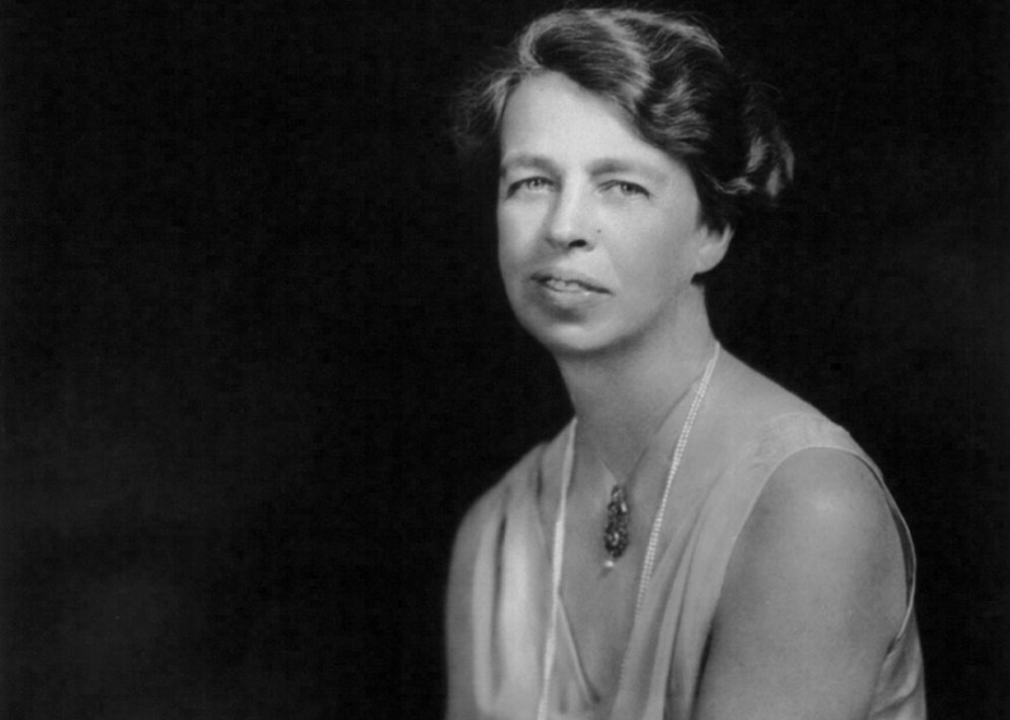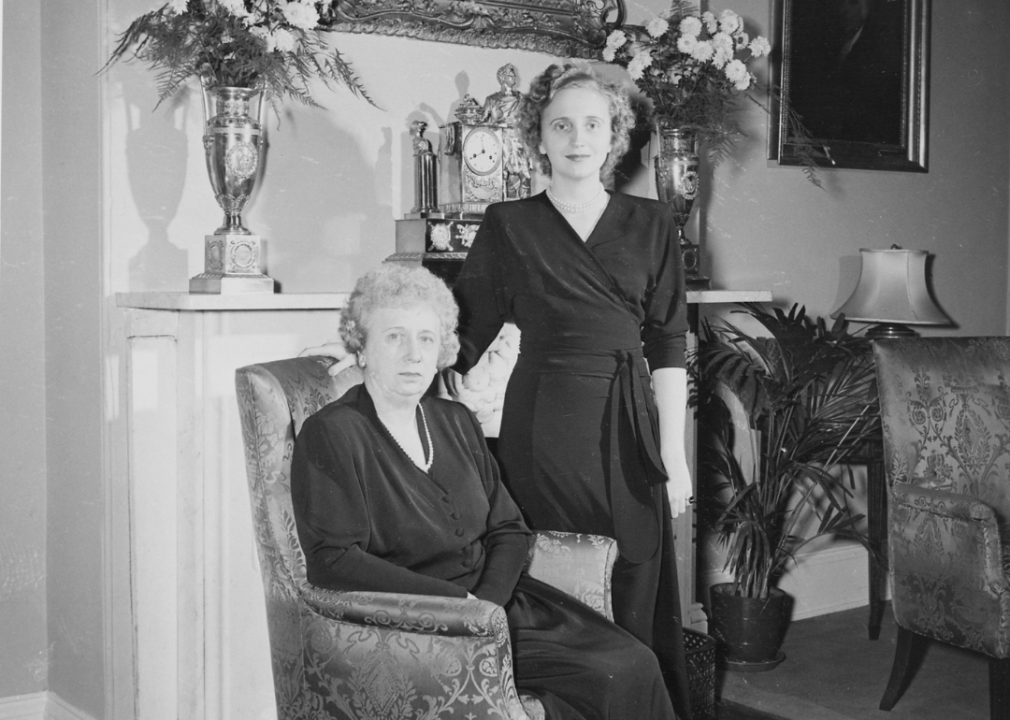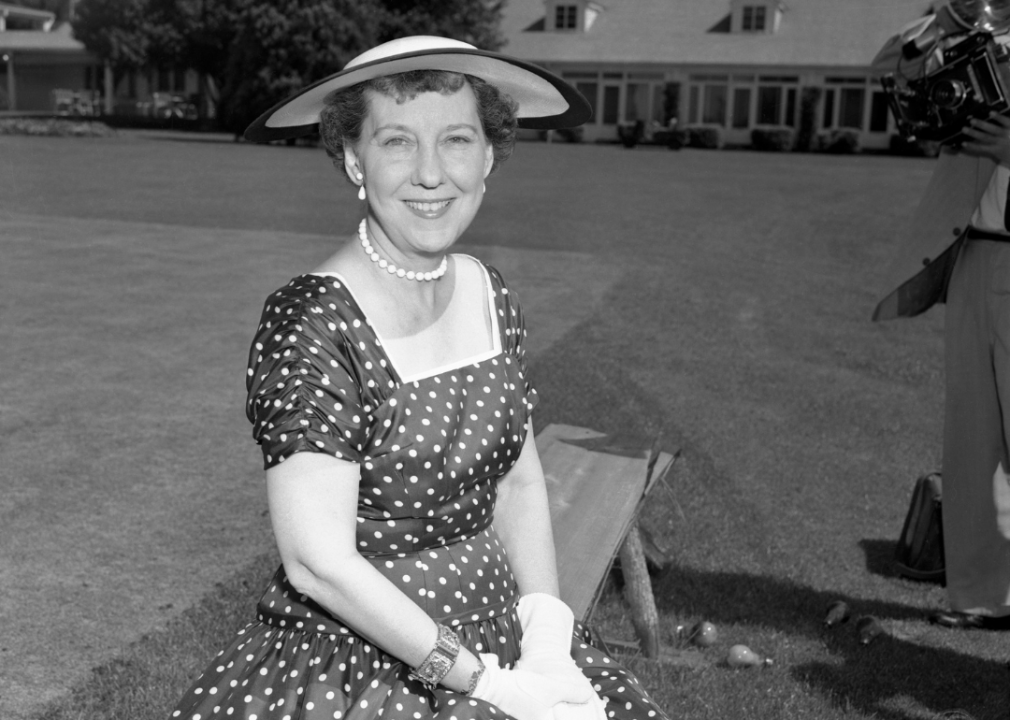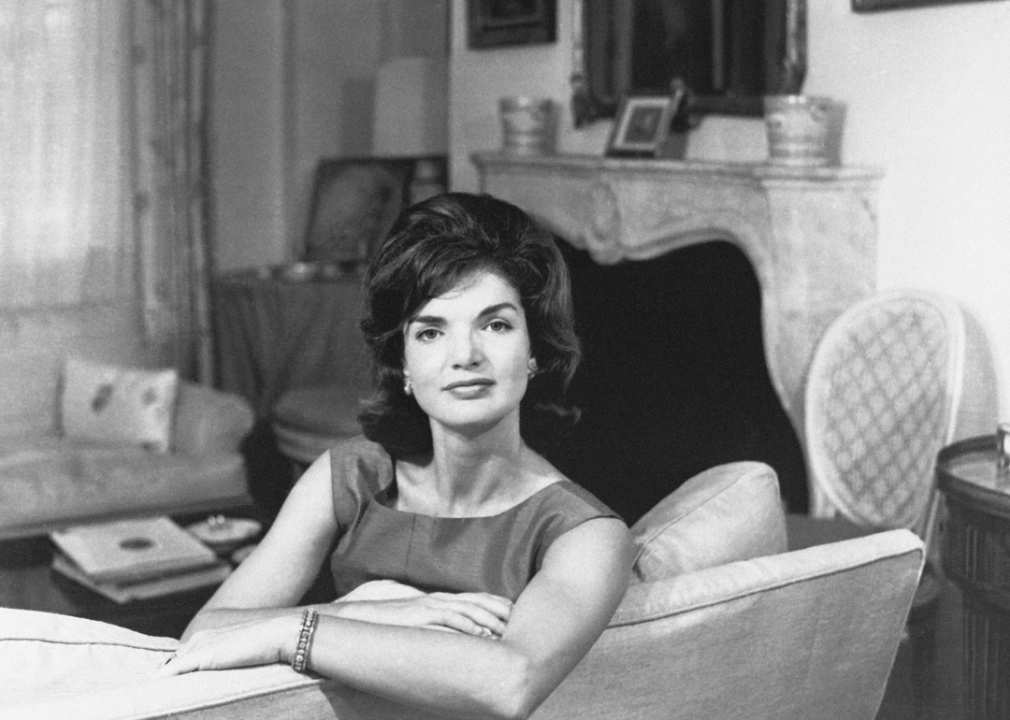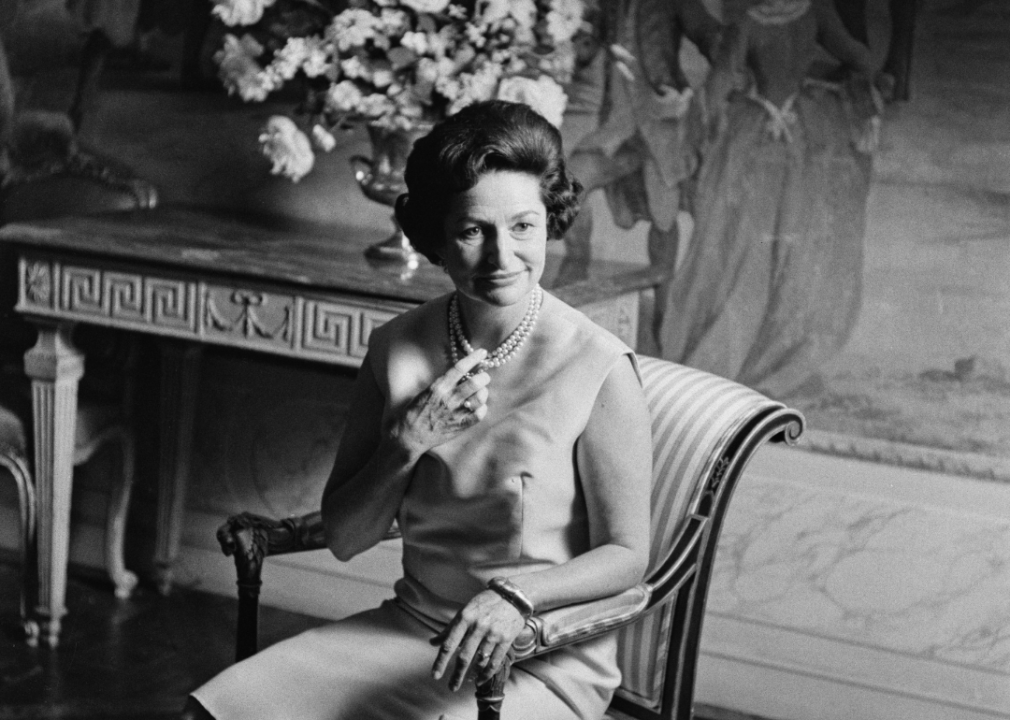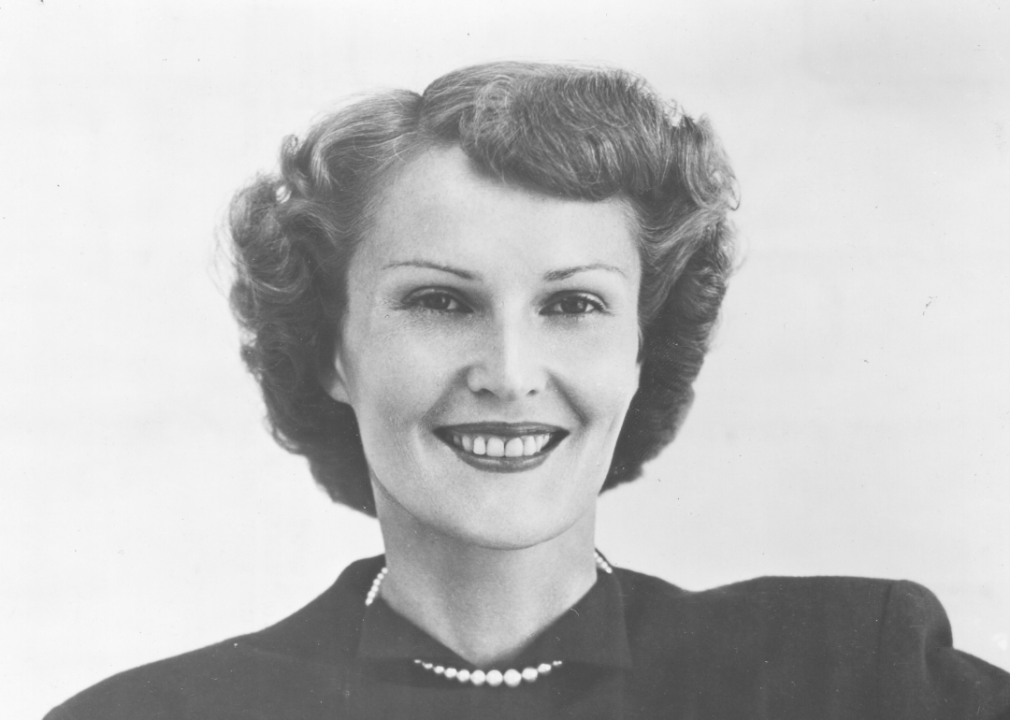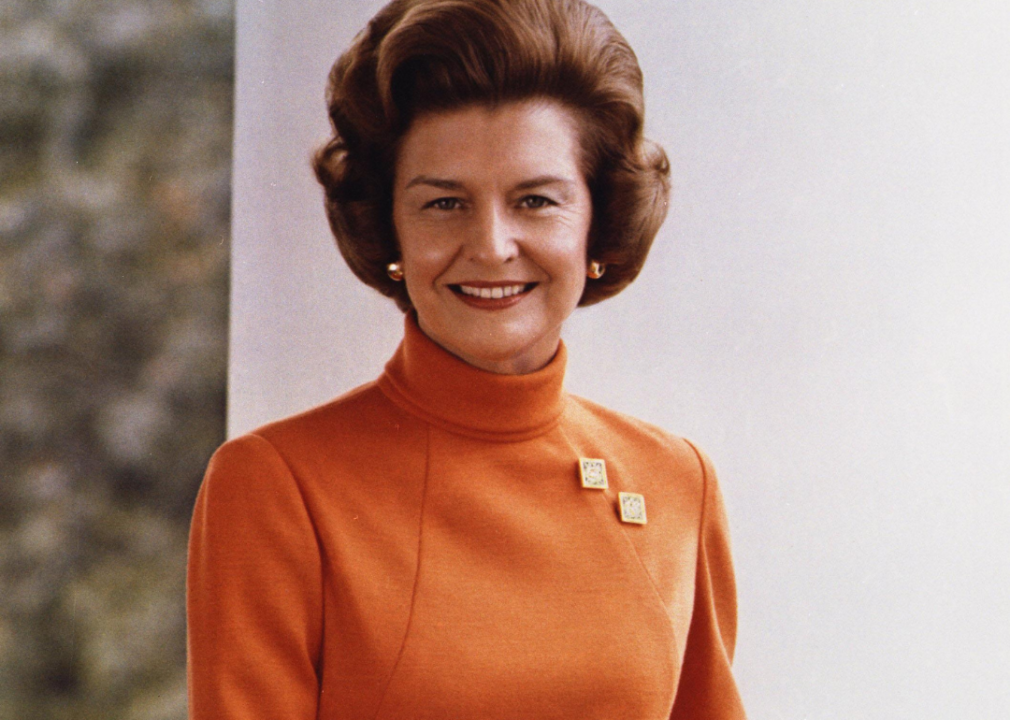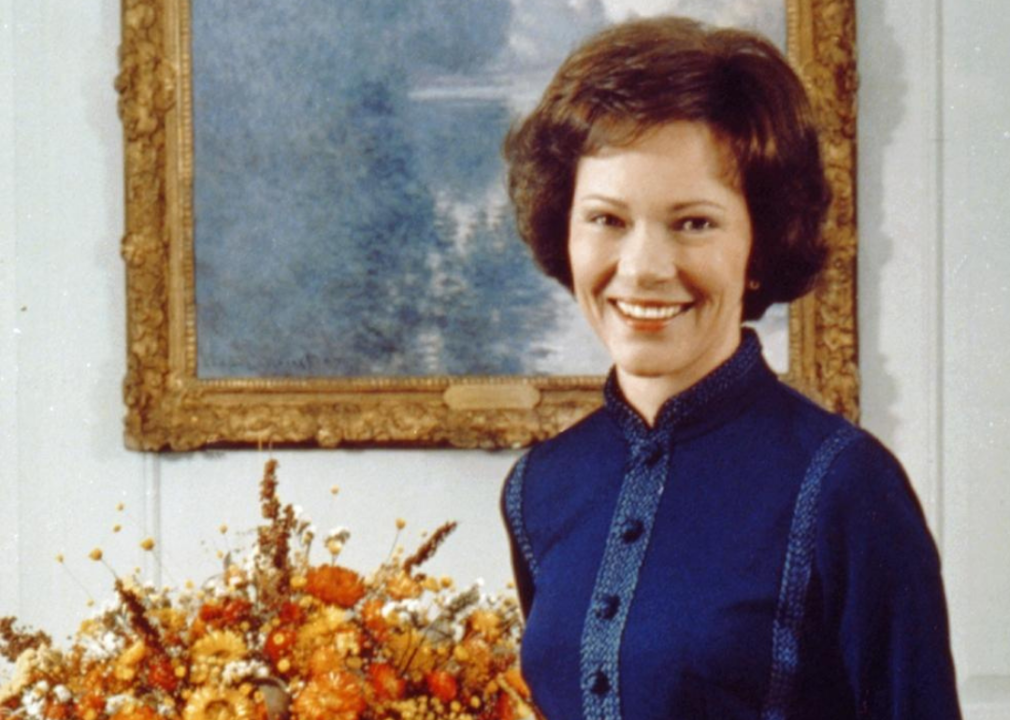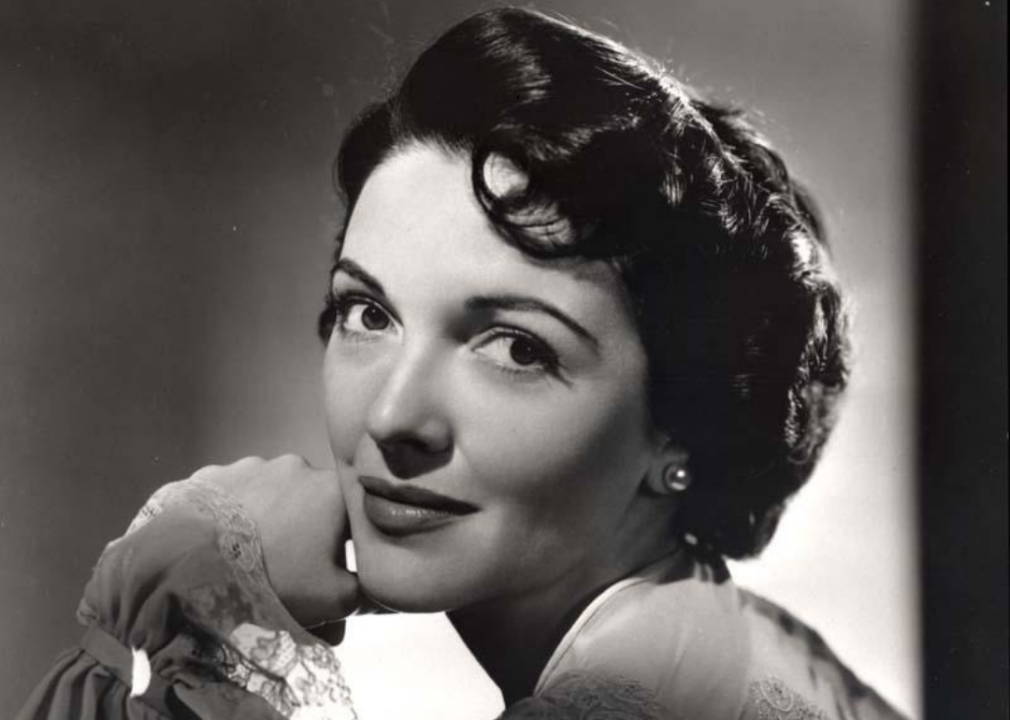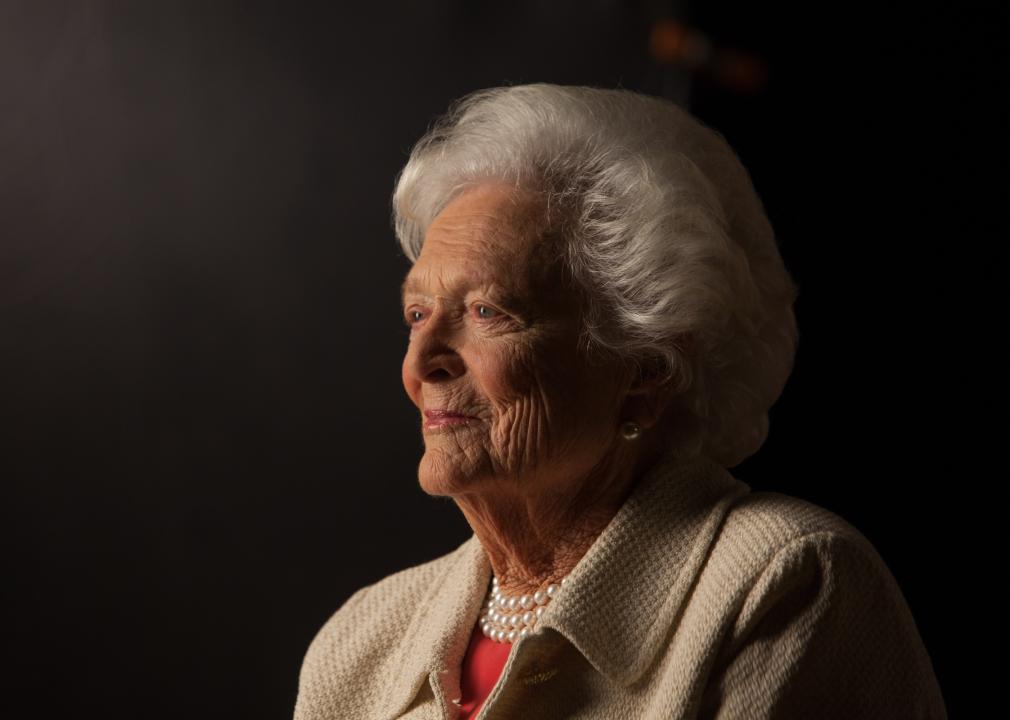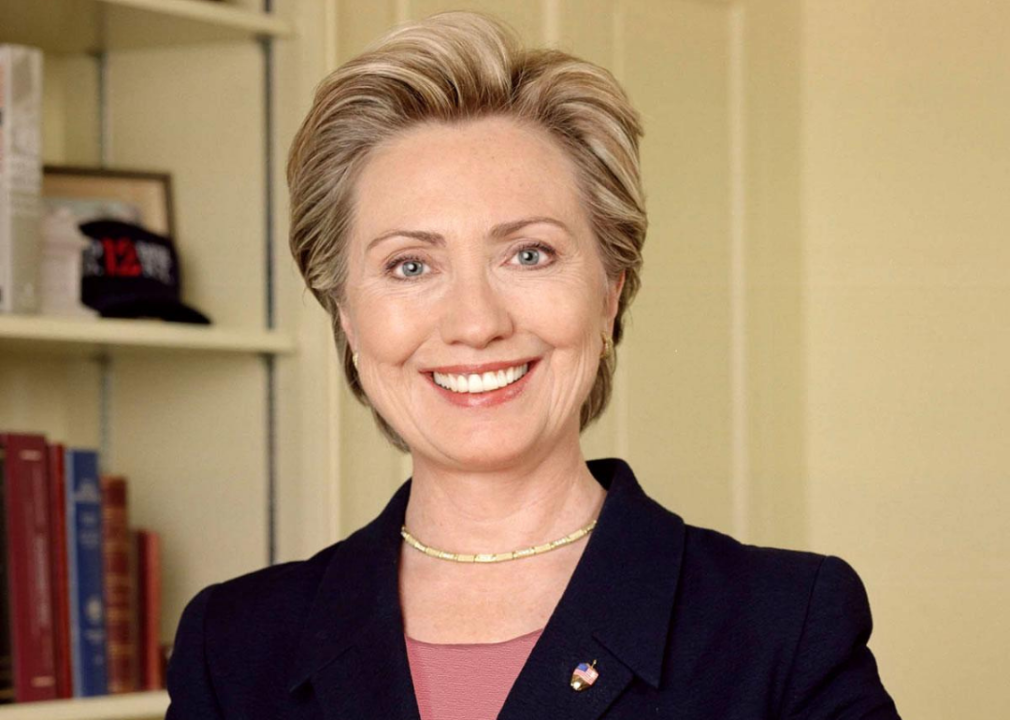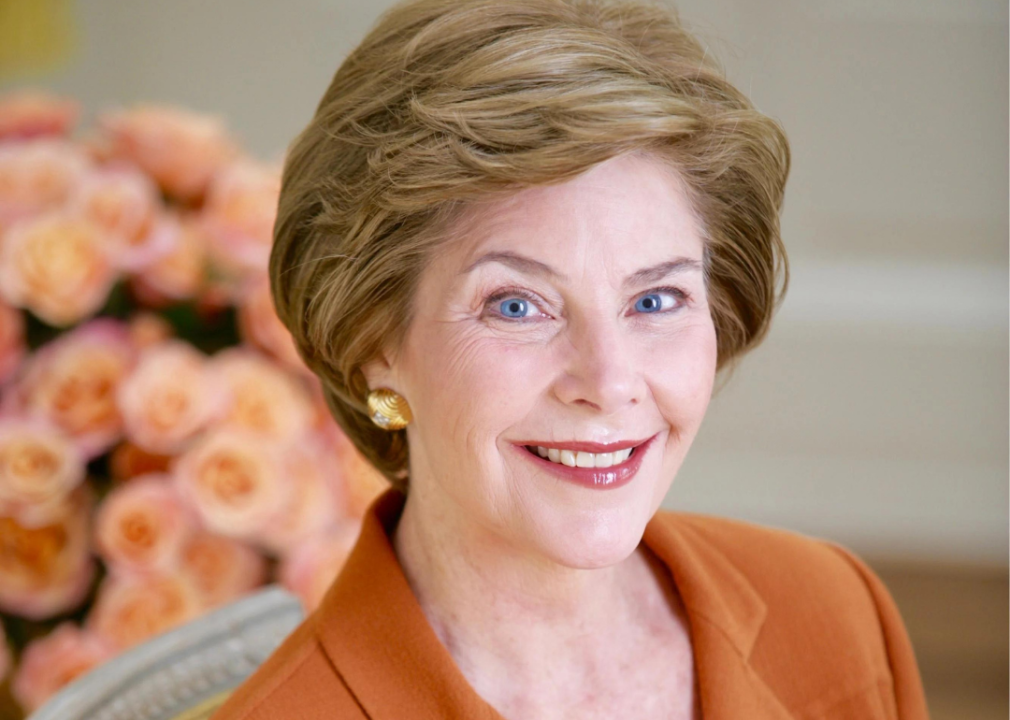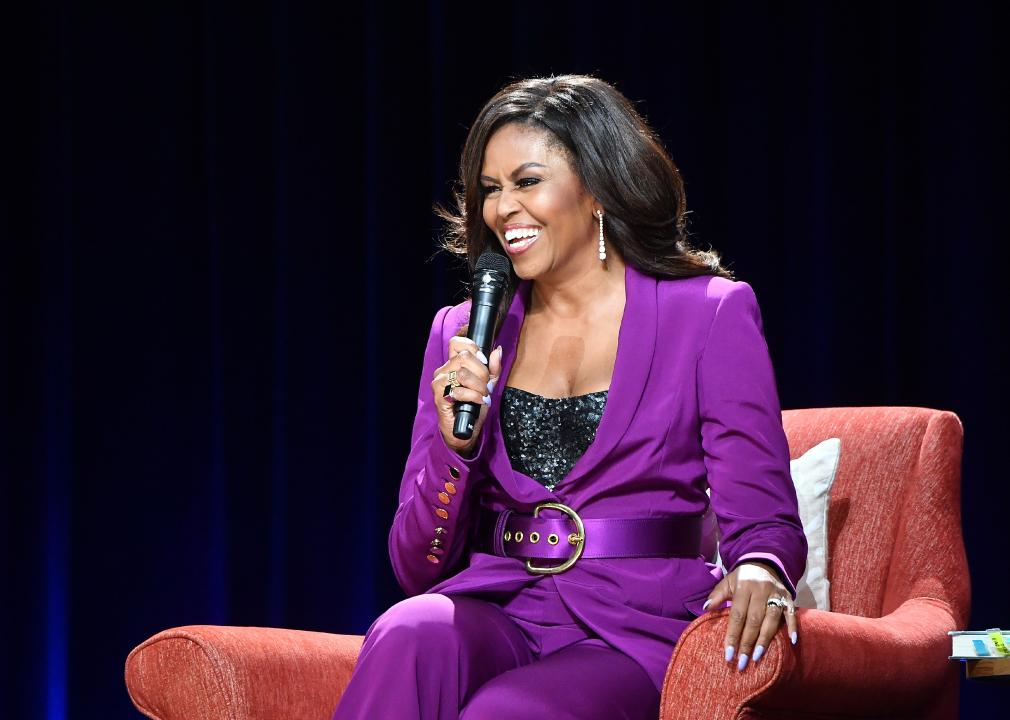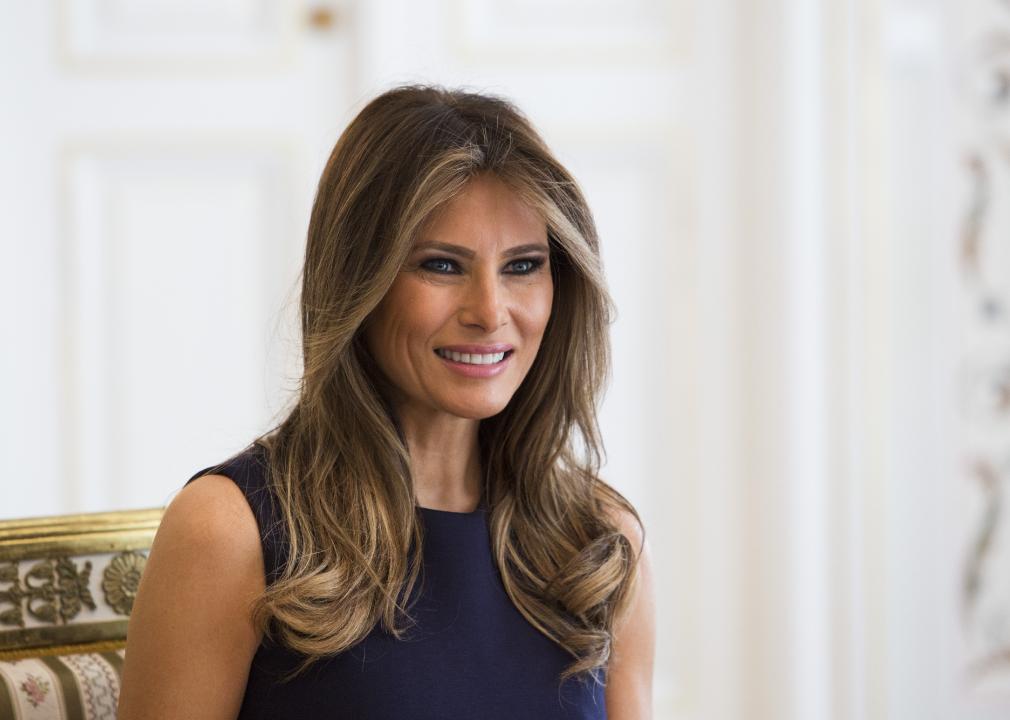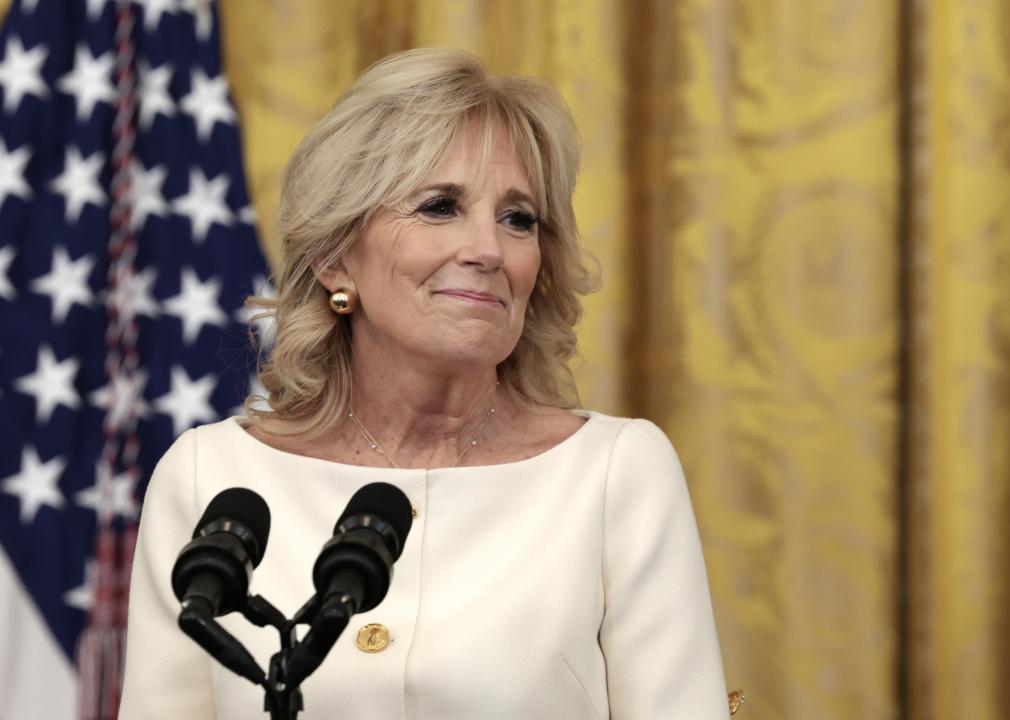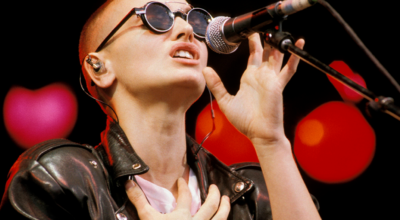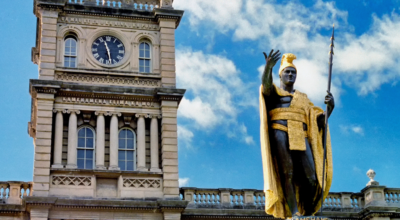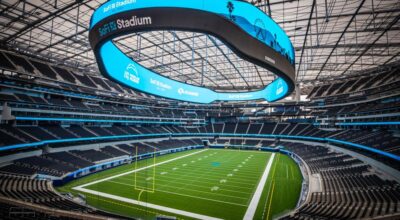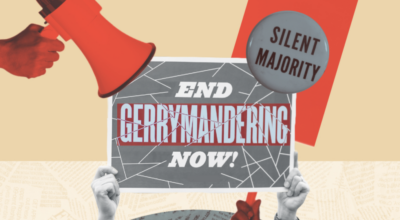Where US first ladies went to college
Published 1:30 am Friday, April 8, 2022
Anna Moneymaker // Getty Images
Where US first ladies went to college
Harvard. Princeton. Yale. These elite alma maters ooze a sense of ambitious intellect—and yet several women alumni who went on to become residents at the White House are remembered more for their fashion sense, flair for interior design, or holiday decorating.
Despite the fact they are unelected officials, the wives of American presidents wield enormous power over public opinion. They can influence their husbands’ image (Al and Tupper Gore’s kiss), seemingly provide profound insights into a president’s thinking (Melania Trump’s jacket), and hold a whole nation together by their grace during a tragedy (Jackie Kennedy). Yet ultimately, the role of first lady can be reductive for women who, in many cases, had lives—and, increasingly often—careers of their own that were tabled during their husbands’ terms.
To illustrate the depth of American first ladies, Stacker researched where each went to college, what they advocated for, and their passions and skills. The forthcoming list reveals a striking lack of diversity in the nation’s highest office, and oftentimes of opportunity—and a window into how far we have come and have yet to go.
Throughout American history, just two U.S. presidents were elected while unmarried. James Buchanan, the 15th president, served his 1857 to 1861 term as a single man, while Grover Cleveland—the only president to serve two non-consecutive terms—was elected in 1885 while single. He got married the following year in the White House. In 2012, Fred Karger became the first openly gay, major-party presidential candidate. Vice President Kamala Harris’ husband, Doug Emhoff, is the first-ever second gentleman.
You may also like: Women who broke barriers throughout military history
![]()
Heritage Art/Heritage Images // Getty Images
Martha Dandridge Custis Washington
– No formal education
Like many women of her time, Martha Washington didn’t receive a formal education. However, she did learn basic mathematics, reading, and writing at home, which is more than many girls at the time could say.
National Gallery of Art // Wikimedia commons
Abigail Smith Adams
– No formal education
An early advocate for women’s rights, Abigail Adams also did not receive a formal education. What education she had, she taught herself from the books in her family’s library.
Thomas Sully // Wikimedia commons
Martha Wayles Skelton Jefferson
– No formal education
Technically, Martha Jefferson never served as First Lady because she died 19 years before her husband Thomas Jefferson became president. She also was not formally educated but was an accomplished musician.
Duyckinick // Wikimedia commons
Dolley Payne Todd Madison
– No formal education
The nation’s fourth First Lady did not have a formal education either, though that didn’t stop her from becoming an accomplished hostess and socialite.
Eben F. Comens after John Vanderlyn // Wikimedia Commons
Elizabeth Kortright Monroe
– No formal education
Though no records of Elizabeth Monroe’s education exist, historians assume she took lessons in French, Latin, music, literature, dancing, and other traditional social graces.
You may also like: Counties with the highest rate of food insecure children
Public Domain // Wikimedia Commons
Louisa Catherine Johnson Adams
– French convent school, English boarding school, and private tutoring
Louisa Adams was the first First Lady with a formal education. As a girl, she attended a Roman Catholic convent school in Nantes, France, and a girls’ boarding school in England. Later, she continued her studies with a private tutor.
Public Domain // Wikimedia Commons
Rachel Donelson Jackson
– No formal education
There’s no record of Rachel Jackson receiving any formal education, but historians assume that her upbringing in rural Virginia likely didn’t include any education beyond basic reading and writing.
Public Domain // Wikimedia Commons
Hannah Hoes Van Buren
– Local school in Kinderhook, New York
Hannah Van Buren grew up in a Dutch community in Kinderhook, New York, where she attended a local school. Dutch was Van Buren’s first language.
Public Domain // Wikimedia Commons
Anna Tuthill Symmes Harrison
– Clinton Academy (secondary school) and the Boarding School of Isabella Marshal Graham (secondary school)
Anna Harrison was a well-educated lady for her time. As a girl, she attended Clinton Academy in East Hampton, New York for several years before enrolling at a boarding school in New York City.
GHI Vintage/Universal History Archive/Universal Images Group // Getty Images
Letitia Christian Tyler
– Unknown
No records exist of Letitia Tyler’s education. In fact, historians know very little about her life before she married John Tyler in 1813.
You may also like: Oldest national parks in America
Francesco Anelli // Wikimedia commons
Julia Gardiner Tyler
– Madame N.D. Chagaray Institute for Young Ladies (finishing school)
Julia Tyler attended a finishing school for young women from elite New York City families for several years. She likely studied music, French literature, ancient history, arithmetic, and composition.
George Dury // Wikimedia commons
Sarah Childress Polk
– Moravian Female Academy (secondary school)
Sarah Polk and her sister Susan attended a young women’s academy about 500 miles away from their home in Murfreesboro, Tennessee. Sadly, their father’s death cut their education short.
Public Domain // Wikimedia commons
Margaret Mackall Smith Taylor
– No formal education
There aren’t any records of Margaret Taylor’s early life, but experts agree that she most likely received private lessons at home in sewing, embroidery, music, and dancing.
Public Domain // Wikimedia commons
Abigail Powers Fillmore
– No formal education
After her father passed away, Abigail Fillmore, her mother, and her six siblings grew up in poverty. She attended school at a one-room schoolhouse, and read the books her father left behind in his personal library.
Library of Congress // Wikimedia commons
Jane Means Appleton Pierce
– No formal education
Jane Pierce also learned basic subjects at home—writing, reading, and mathematics—but never attended school or college. She took a special interest in music and was a skilled pianist.
You may also like: How Americans use the internet today, by the numbers
Kean Collection // Getty Images
Harriet Lane
– Academy of the Visitation Convent School (secondary school)
Harriet Lane was an expert equestrian who studied at several schools in Pennsylvania and West Virginia before enrolling in a convent school in Washington, D.C. Lane had an avid interest in classic literature and international affairs.
Mathew Brady/MPI // Getty Images
Mary Todd Lincoln
– Shelby Female Academy (secondary school) and Madame Mentelle’s Boarding School (secondary school)
During her adolescence, Mary Todd Lincoln learned grammar, geography, arithmetic, poetry, literature, French, dancing, and singing at two schools for young women.
Buttre, John Chester // Wikimedia commons
Eliza McCardle Johnson
– The Rhea Academy (secondary school)
The dates that Eliza Johnson studied at the Rhea Academy are unknown, but she likely took classes in English, composition, philosophy, and rhetoric.
Bettmann/Contributor // Getty Images
Julia Dent Grant
– The Mauro Academy for Young Ladies (secondary school)
Julia Grant attended two schools in St. Louis, Missouri: First, a one-room schoolhouse with four teachers, then a private school for girls.
Mathew Brady // Wikimedia commons
Lucy Ware Webb Hayes
– Ohio Wesleyan Preparatory Department (undergraduate) and Cincinnati Wesleyan Female College (undergraduate)
Lucy Webb Hayes studied French, penmanship, geometry, geology, astronomy, trigonometry, German, drawing, painting, music, and other subjects at two Ohio schools.
You may also like: Libertarian, gerrymandering, and 50 other political terms you should know
Mathew Brady // Wikimedia commons
Lucretia Rudolph Garfield
– Western Reserve Eclectic College (undergraduate)
Lucretia Garfield enrolled in Western Reserve Eclectic College, which still operates as a co-ed liberal arts college known as Hiram College today. Garfield’s parents believed in the importance of education for both men and women—her father even helped found Hiram College.
Public Domain // Wikimedia commons
Ellen Lewis Herndon Arthur
– Unknown
Little is known about Ellen Lewis Herndon Arthur’s education, though many assume she received some sort of education while growing up in Washington, D.C. Arthur is also not technically a First Lady, since she died from pneumonia before her husband, Chester A. Arthur, took office.
Library of Congress/Corbis/VCG // Getty Images
Frances Folsom Cleveland
– Wells College (undergraduate)
In order to attend to Wells College—one of the first liberal arts colleges for women in the United States—Frances Cleveland had to pass exams in Latin and German. The library at Wells now has a research collection devoted to her life.
PhotoQuest // Getty Images
Caroline Lavinia Scott Harrison
– Oxford Female Institute (undergraduate)
Harrison’s father was a professor at Miami University, who encouraged her to attend the Oxford Female Institute and study music. After graduation, Harrison became a teacher of music, home economics, and painting.
Library of Congress/Corbis/VCG // Getty Images
Frances Folsom Cleveland
– Wells College (undergraduate)
Grover Cleveland served two non-consecutive terms as president, which is why Frances Folsom Cleveland makes the list twice.
You may also like: How Lil Nas X broke all-time music streaming records with ‘Old Town Road’
McKinney & Block, Canton // Wikimedia commons
Ida Saxton McKinley
– Brooke Hall Female Seminary (finishing school)
Ida McKinley attended a finishing school, a popular educational choice for the young women of elite families. Her courses included needlepoint, music, linguistics, and fine arts.
Théobald Chartran (1849–1907) // Wikimedia Commons
Edith Kermit Carow Roosevelt
– Louise Comstock Private School (secondary school)
Edith Roosevelt attended Louise Comstock Private School in New York City. There, she discovered her lifelong love of Shakespeare and developed her noted sense of morality.
Library of Congress/Corbis/VCG // Getty Images
Helen Herron Taft
– University of Cincinnati (undergraduate)
Helen Taft spent most of her education at the Miss Nourse School in Cincinnati, and later took classes at the University of Cincinnati where she studied German and chemistry.
Woodrow Wilson Presidential Library Archives from Staunton, VA // Wikimedia Commons
Ellen Axson Wilson
– Art Students League (undergraduate)
After graduating from Rome Female College with her high school degree, Ellen Wilson moved to New York City to study at the Art Students League. The school, which still exists today, was considered radical for its equal treatment of female and male students.
© CORBIS/Corbis // Getty Images
Edith Bolling Galt Wilson
– Martha Washington College (secondary school) and The Richmond Female Seminary (secondary school)
Edith Wilson studied for several terms at both of these Virginia institutions. Her studies included history, mathematics, typewriting, geography, Latin, and Greek.
You may also like: From Stonewall to today: 50 years of modern LGBTQ+ history
Library of Congress // Wikimedia commons
Florence Kling Harding
– Cincinnati Conservatory of Music (undergraduate)
Florence Harding enrolled at the Cincinnati Conservatory of Music (now called the College-Conservatory of Music) in 1877. She studied piano in the hopes of becoming an internationally recognized concert pianist.
Herbert E. French // Wikimedia Commons
Grace Anna Goodhue Coolidge
– University of Vermont, Burlington (undergraduate)
This First Lady hailed from Vermont, and attended the University of Vermont, Burlington. Though she lived at home while attending school, Coolidge was one of the founders of the Vermont chapter of the Pi Beta Phi sorority, and was elected vice president of her junior class.
Underwood & Underwood // Wikimedia commons
Lou Henry Hoover
– Stanford University (undergraduate)
Talk about impressive: Lou Hoover was the first woman in America to earn a bachelor’s degree in geology from Stanford. She was applied to the program after attending a lecture with Stanford professor J.C. Banner, and asked if he would accept a woman as a student.
Underwood & Underwood // Wikimedia commons
Anna Eleanor Roosevelt
– Allenswood Girls Academy (secondary school)
Eleanor Roosevelt’s education ended after secondary school, though she said she’d wished she’d attended college. She studied at the Allenswood Girls Academy outside of London, noting those as some of the happiest years of her life.
Harry S. Truman Library // Wikimedia commons
Elizabeth Virginia Wallace Truman
– Miss Barstow’s School (finishing school)
Bess Truman attended a finishing school in Kansas City instead of going to college. She earned high marks in French and rhetoric.
You may also like: Most and least popular senators in America
Bettmann // Getty Images
Mamie Geneva Doud Eisenhower
– Miss Wolcott School for Girls (finishing school)
Not much is known about Mamie Eisenhower’s education, which makes sense, as historians note she was not a big fan of school. Eisenhower attended a finishing school in Denver, Colorado.
Bettmann/Contributor // Getty Images
Jacqueline Lee Bouvier Kennedy
– Vassar College (transferred), University of Grenoble (study abroad), Sorbonne University (study abroad), George Washington University (undergraduate), and Georgetown University (continuing education)
When Jackie Kennedy became First Lady, she brought along a much broader education than any of her predecessors. She spent her freshman and sophomore years at Vassar College before studying abroad at the University of Grenoble and Sorbonne University during her junior year. She then transferred to George Washington University to finish her degree in French literature, and later took classes in American history at Georgetown.
Vytas Valaitis/Pix/Michael Ochs Archives // Getty Images
Claudia Taylor (Lady Bird) Johnson
– University of Texas (undergraduate)
After attending a local junior college, Lady Bird Johnson attended the University of Texas, where she studied journalism and earned her teaching certificate. She met future husband Lyndon Johnson a year later.
PhotoQuest // Getty Images
Patricia Ryan Nixon
– University of Southern California (undergraduate)
Patricia Nixon grew up near Los Angeles and stayed close to home for her college degree. She worked her way through USC with a variety of part-time jobs—including working as an extra in movies—and graduated cum laude in 1937.
David Hume Kennerly // Wikimedia commons
Elizabeth Bloomer Ford
– Bennington College (undergraduate)
Betty Ford studied modern dance at Bennington College in Vermont. After graduation, she trained with choreographer Martha Graham in New York City.
You may also like: Oldest cities in America
White House // Wikimedia commons
Rosalynn Smith Carter
– Georgia Southwestern College (undergraduate)
After she graduated from high school as valedictorian, Rosalynn Carter enrolled at Georgia Southwestern College. After her freshman year of college, Rosalynn began dating future husband Jimmy Carter. They married on July 7, 1946.
Reagan Library // Wikimedia commons
Nancy Davis Reagan
– Smith College (undergraduate)
During her time at Smith College, Nancy Reagan majored in theater and set her sights on a career in Hollywood. She toured with a theater company, appeared on Broadway, and acted in 11 films before meeting Ronald Reagan.
David Hume Kennerly // Getty Images
Barbara Pierce Bush
– Smith College (undergraduate)
Like her predecessor, Barbara Pierce Bush also attended Smith College, where she was captain of the freshman soccer team. She dropped out after her freshman year to marry George H. W. Bush in 1945.
United States Senate // Wikimedia commons
Hillary Rodham Clinton
– Wellesley College (undergraduate) and Yale Law School (doctorate)
Hillary Clinton graduated with high honors from Wellesley College, where she studied politics and was elected the first-ever student commencement speaker by her classmates. Next, she enrolled in Yale Law School, where she became a member of the board of editors of the Yale Review of Law and Social Action.
Krisanne Johnson // Wikimedia commons
Laura Welch Bush
– Southern Methodist University (undergraduate) and the University of Texas (masters)
Laura Bush attended two schools in the Lone Star state. She received her undergraduate degree in elementary education from Southern Methodist University, then a masters degree in library science from the University of Texas.
You may also like: Youngest and oldest presidents in U.S. history
Paras Griffin // Getty Images
Michelle Obama
– Princeton University (undergraduate) and Harvard Law School (doctorate)
As an undergraduate, Michelle Obama studied sociology and African American studies at Princeton University. Obama moved on to Harvard Law School before working as a lawyer in Chicago—the firm where she met her husband.
ANDRZEJ HULIMKA/AFP // Getty Images
Melania Trump
– University of Ljubljana (undergraduate)
The only first lady to become a naturalized U.S. citizen, Melania Trump attended the University of Ljubljana in her native Slovenia. She never completed her degree, leaving after one year to pursue a career in modeling.
Anna Moneymaker // Getty Images
Jill Biden
– University of Delaware (undergraduate, doctorate) and West Chester University (first masters) and Villanova University (second masters)
Jill Biden began her decades-long teaching career in her 20s after graduating from the University of Delaware. She is the first presidential spouse to have held onto her career during her husband’s presidential term.
You may also like: What the world’s most polluted beaches look like today


